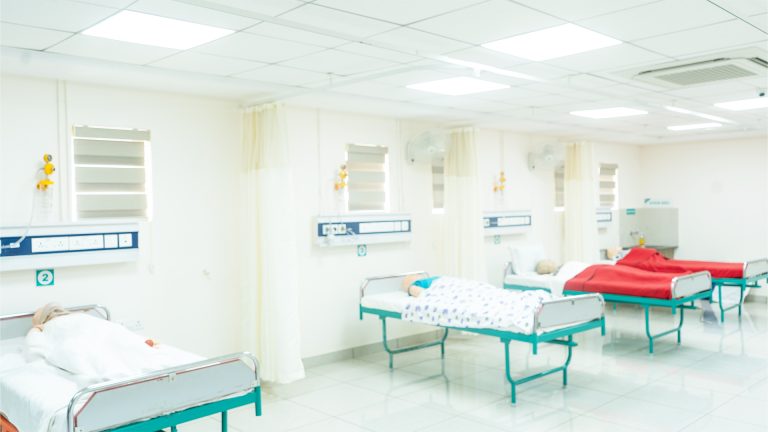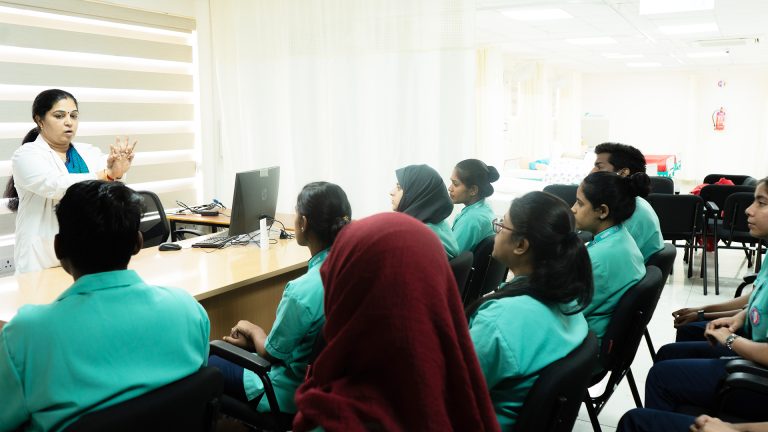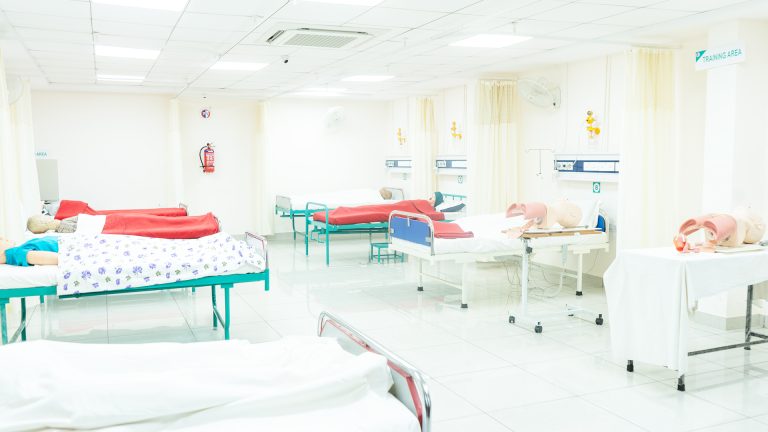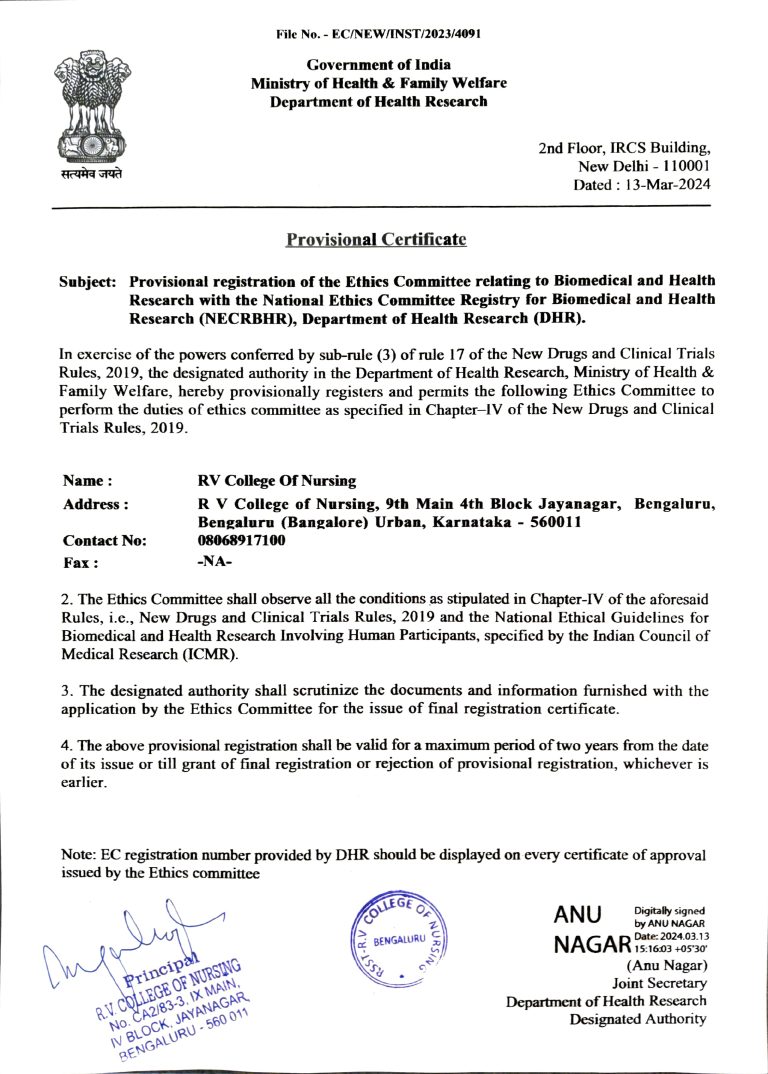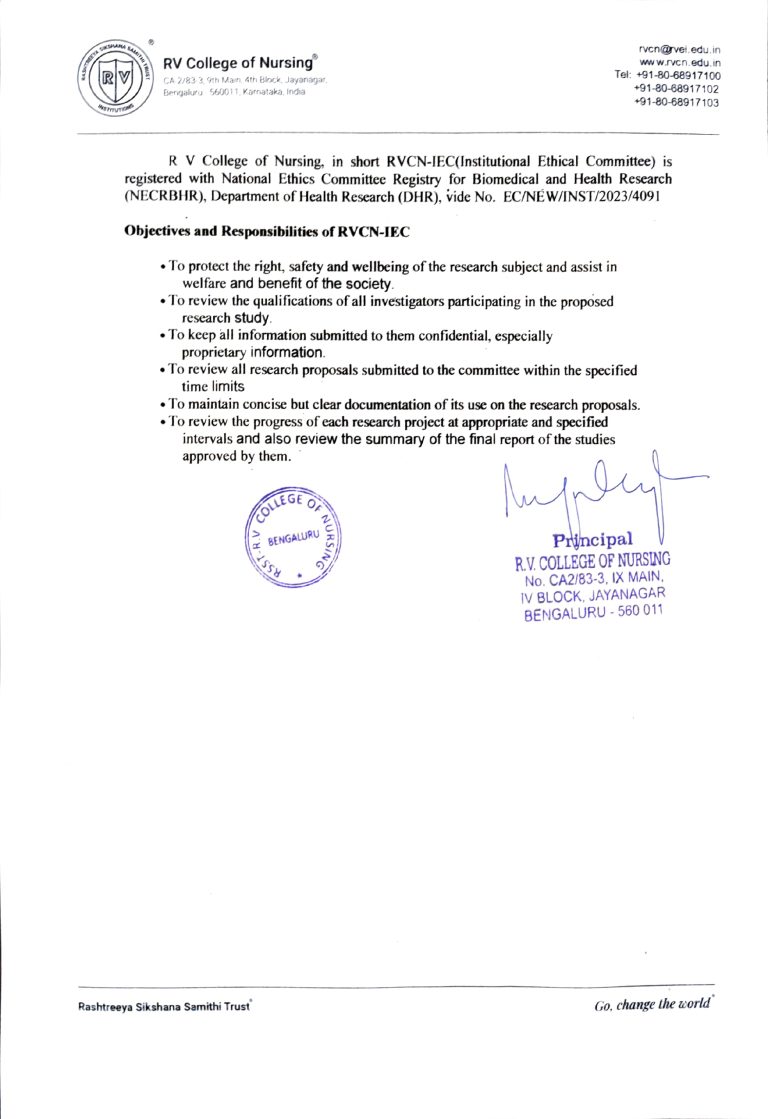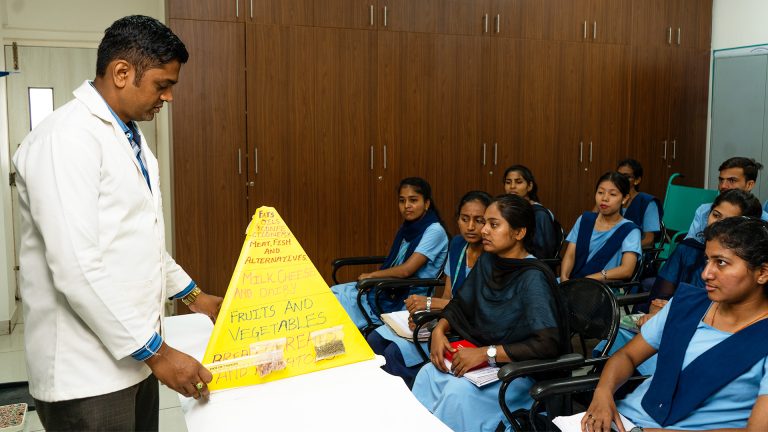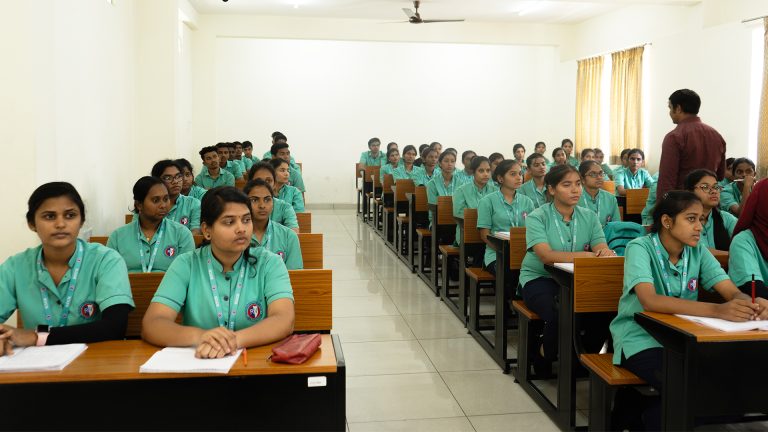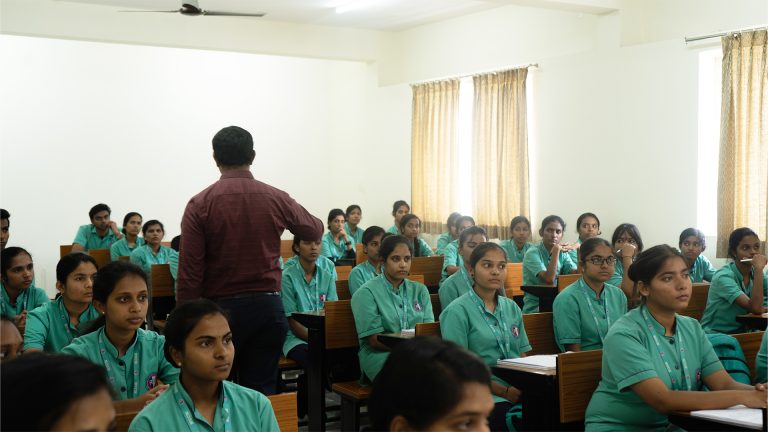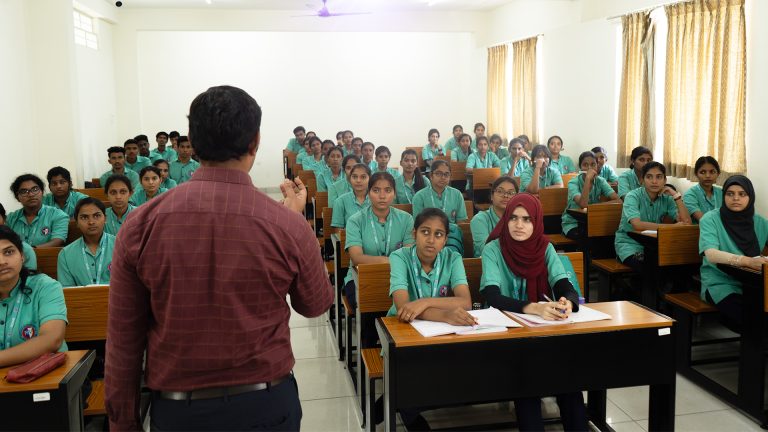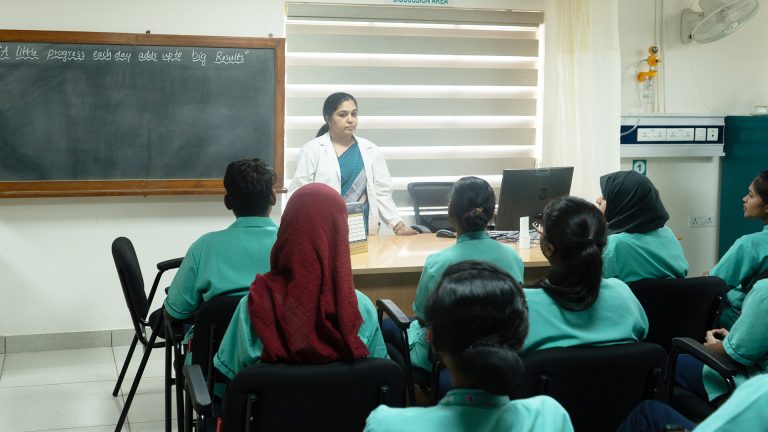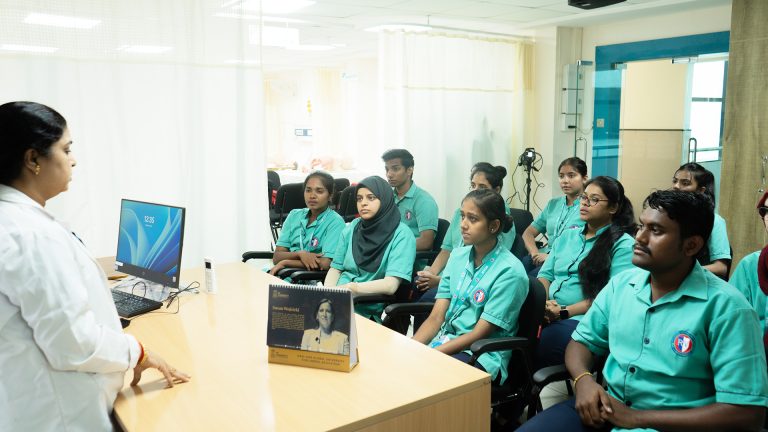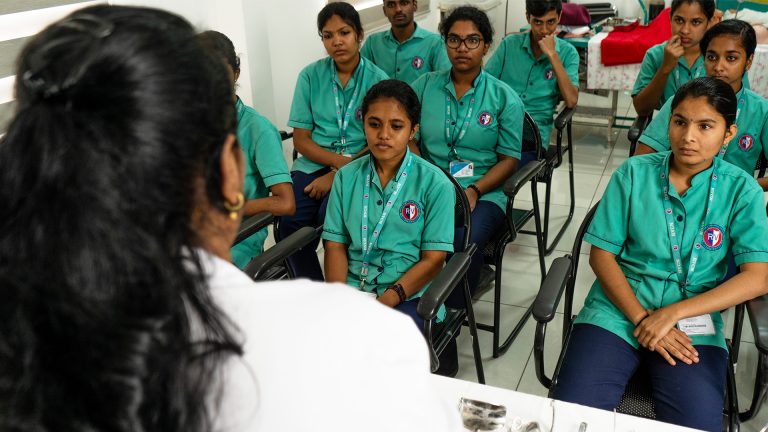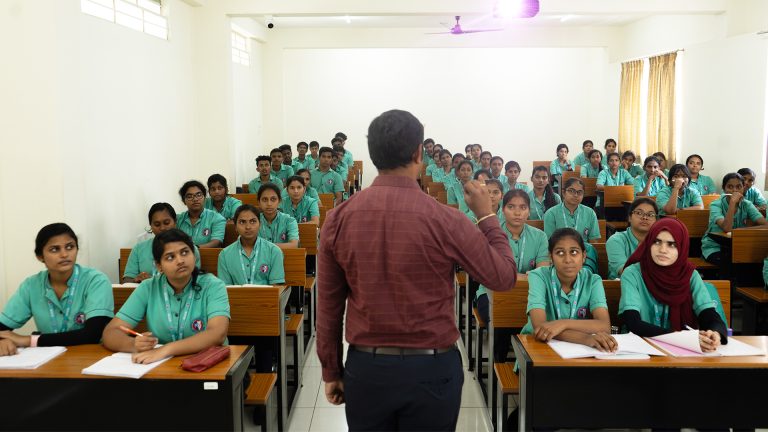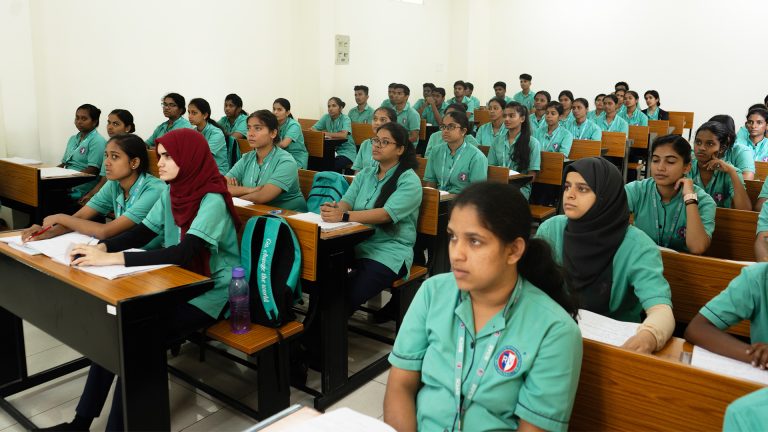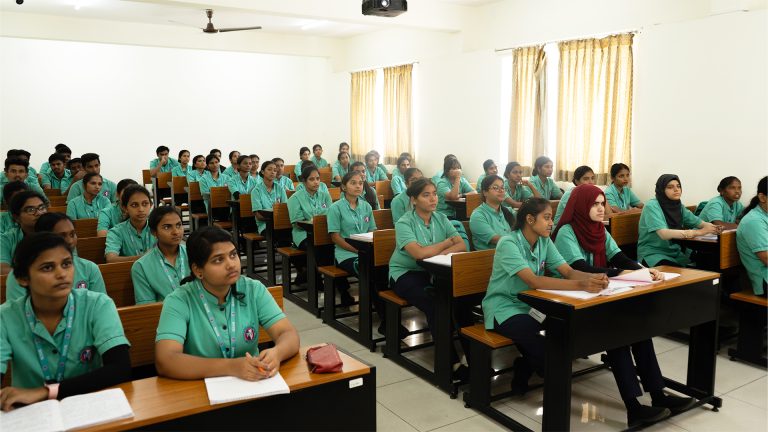OUR DEPARTMENTS
The various departments stand as pillars of knowledge, each with a distinct focus that contributes to the holistic development of our nursing students. They form a comprehensive framework that shapes the competent, compassionate, and empowered nurses of tomorrow.
The Department of Child Health (Paediatric) Nursing provides courses related to child health within the framework of the curriculum of the RV College of Nursing and the Indian Nursing Council (INC). The Department of Child Health Nursing aims to train students in developing an understanding of the modern concept of child care, identification, prevention, and nursing management of common and critical illnesses in neonates and children. The department provides student-centred teaching and learning in a conducive atmosphere that helps students gain confidence in their nursing knowledge and skills. It is concerned with training students to develop the knowledge and hands-on skills required to respond to the healthcare needs of infants, children, and their families in a variety of settings. Importance is given to evidence-based practice and safeguarding the health of the child and family. The courses offer students the opportunity to identify the needs of children and develop competencies for providing comprehensive care for them. To augment the knowledge and skills of the students, they are provided with good clinical experience in paediatric medical and surgical wards, apart from theory classes. The students also have the privilege of becoming familiar with the most sophisticated equipment and technology allied to child care. The department is involved in various research areas in preventive paediatrics and nursing care for children. It also organises various programmes and educational visits related to child health nursing.
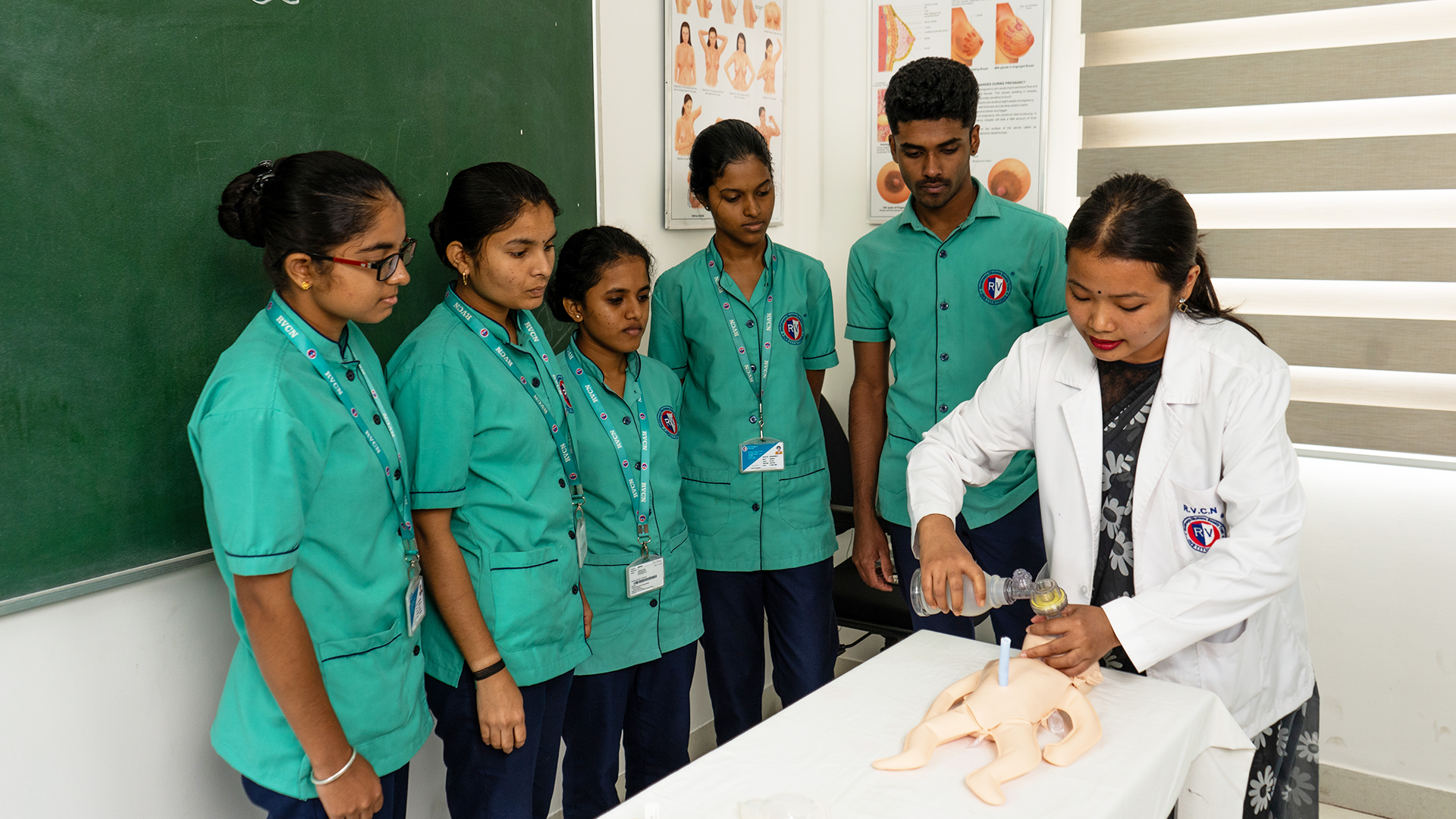
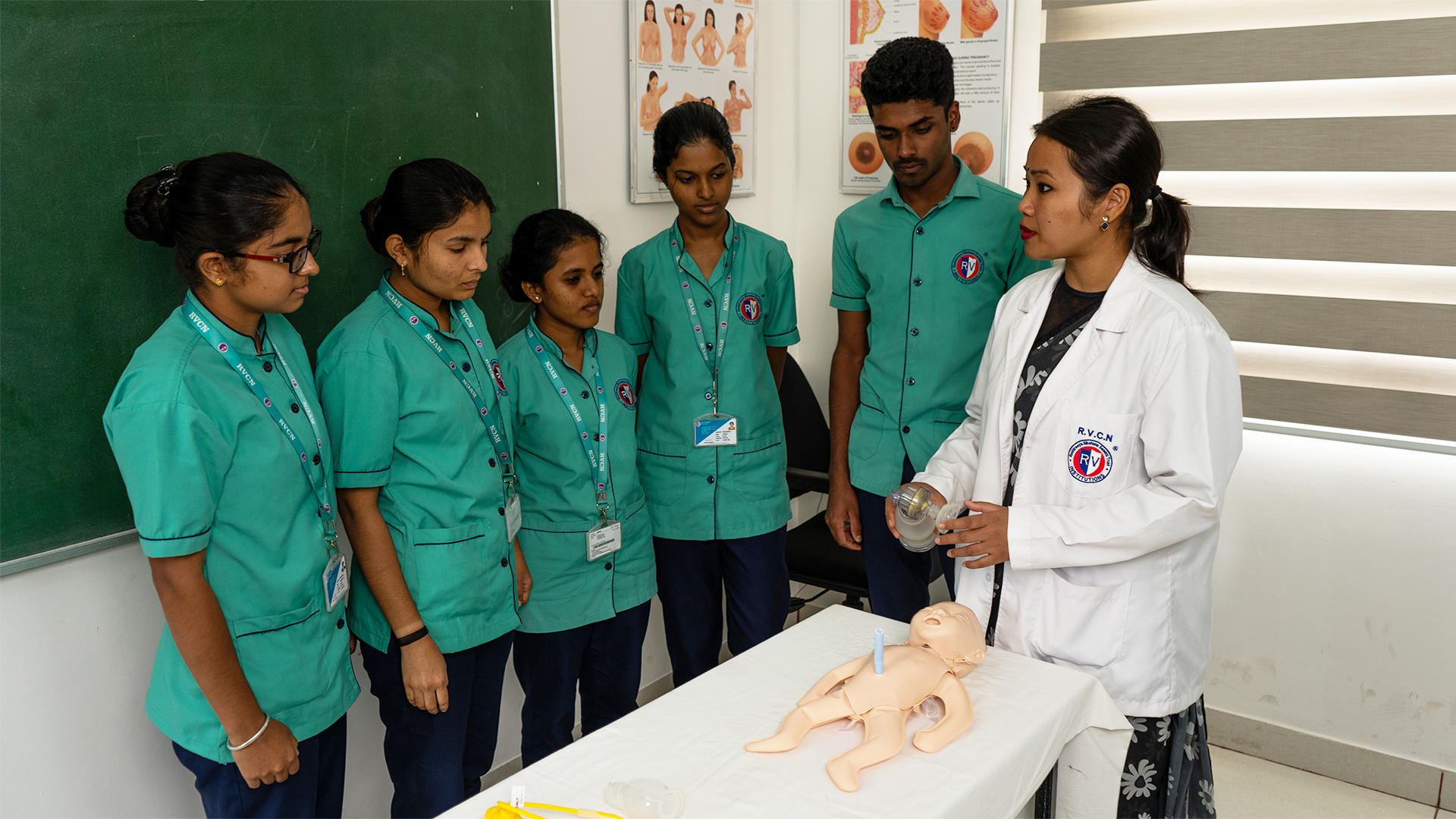
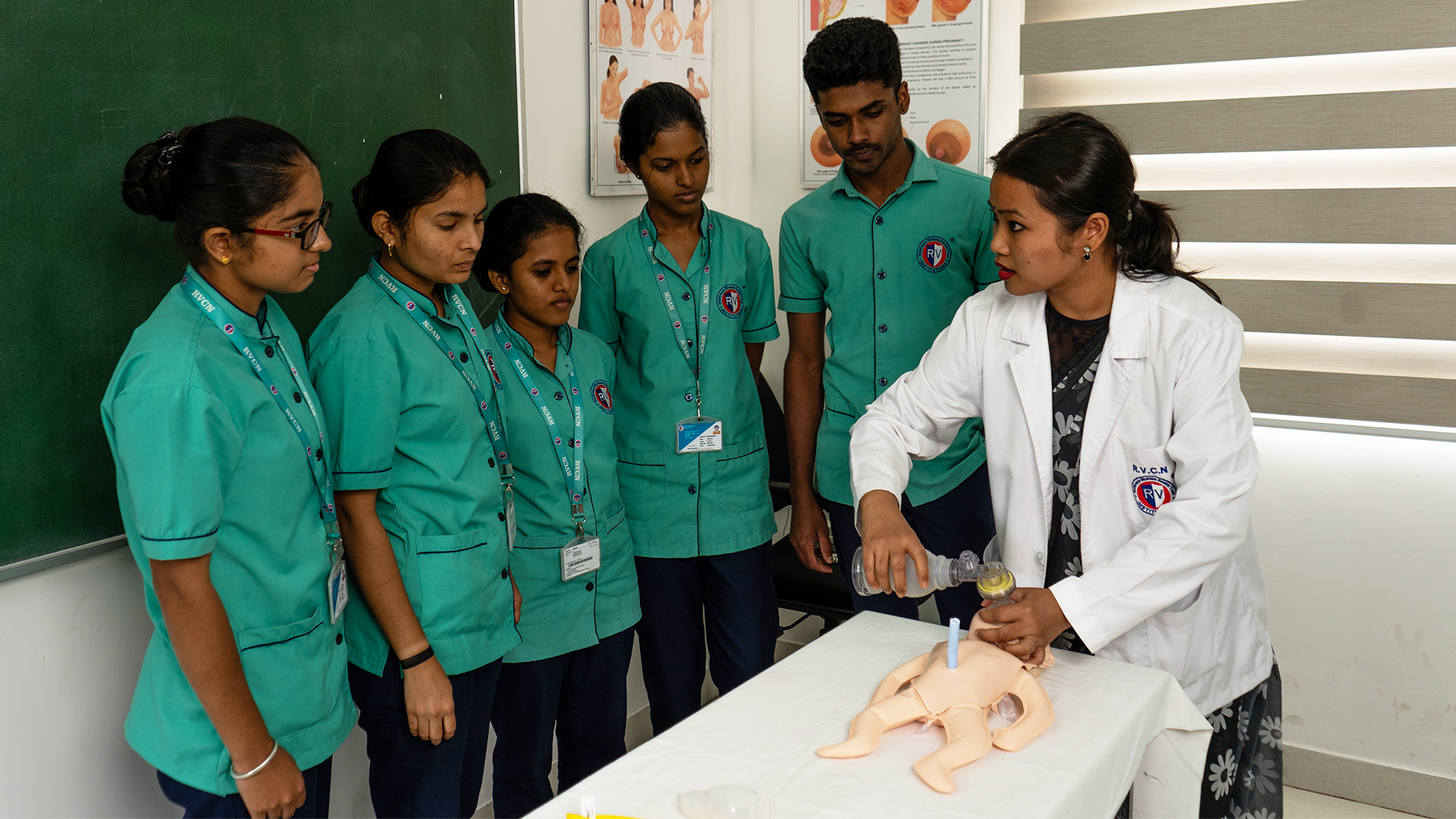
The Department of Community Health Nursing involves training undergraduate nursing students in the field of community health nursing. Students are trained in the areas of family assessment and community assessment to identify the health problems of people living in the community. Students are further trained to make referrals for people identified as having problems and to give health education with an emphasis on primary prevention. Organising camps based on the needs of the community and also performing various forms of health education programmes.
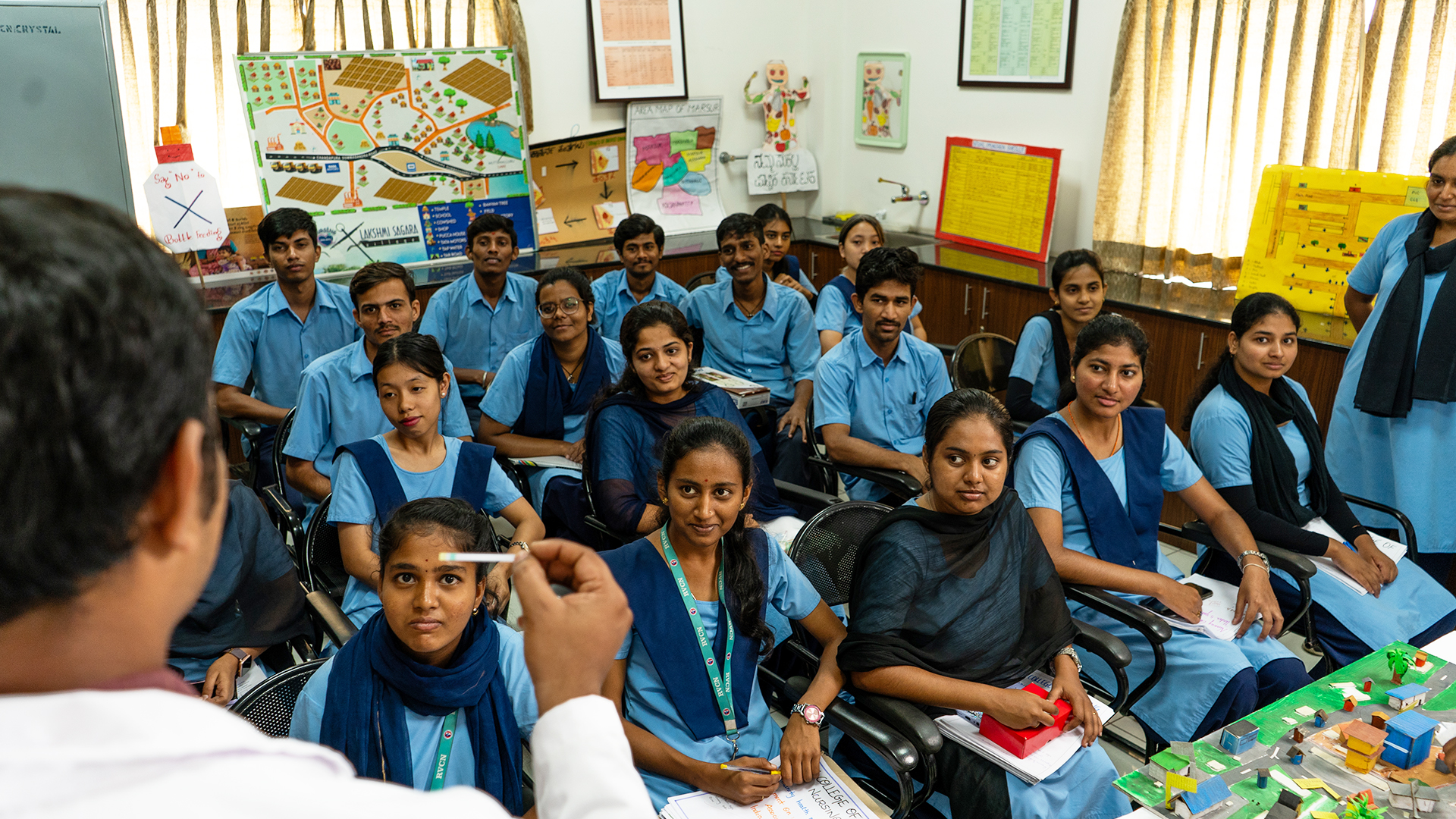
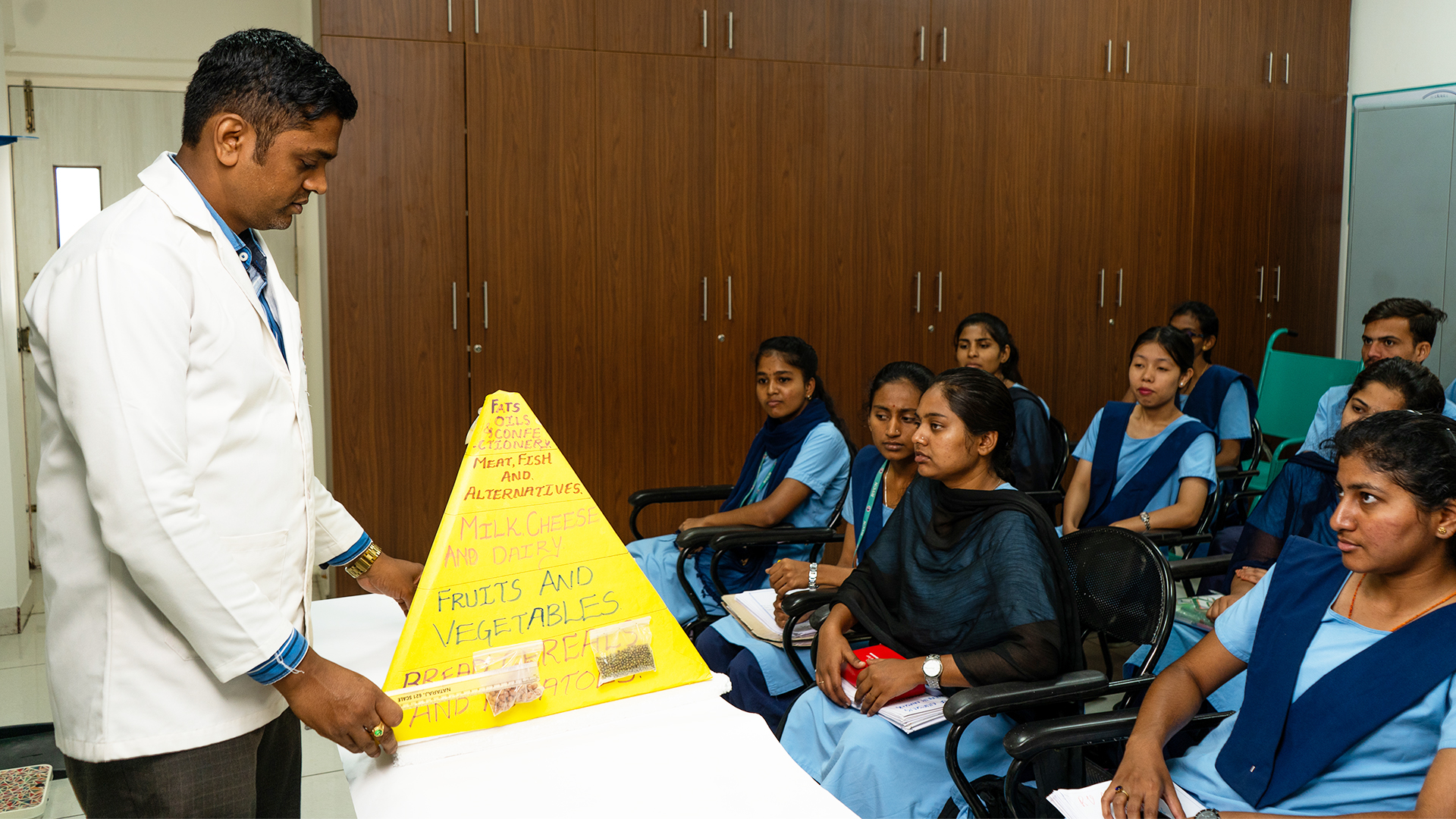
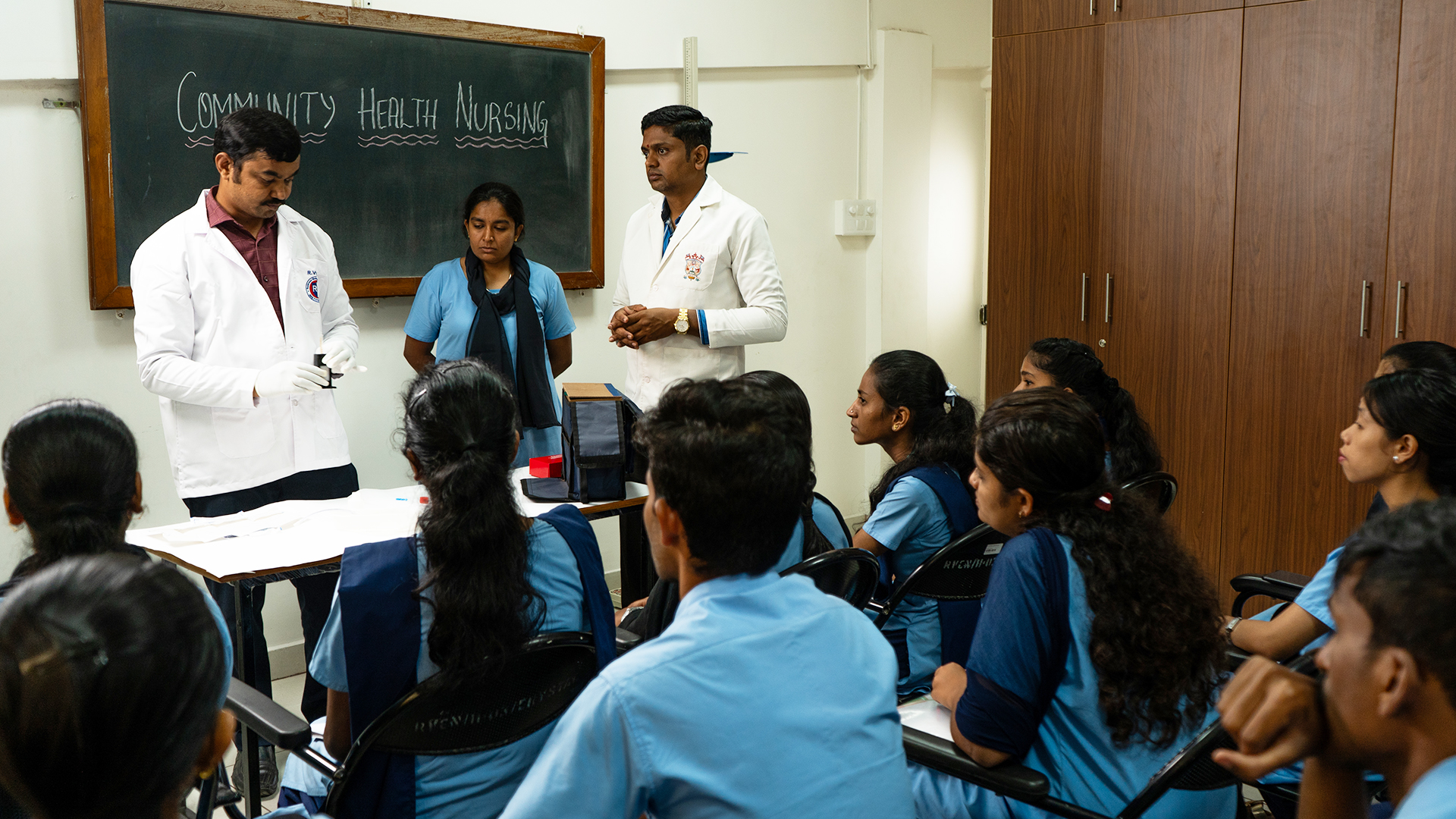
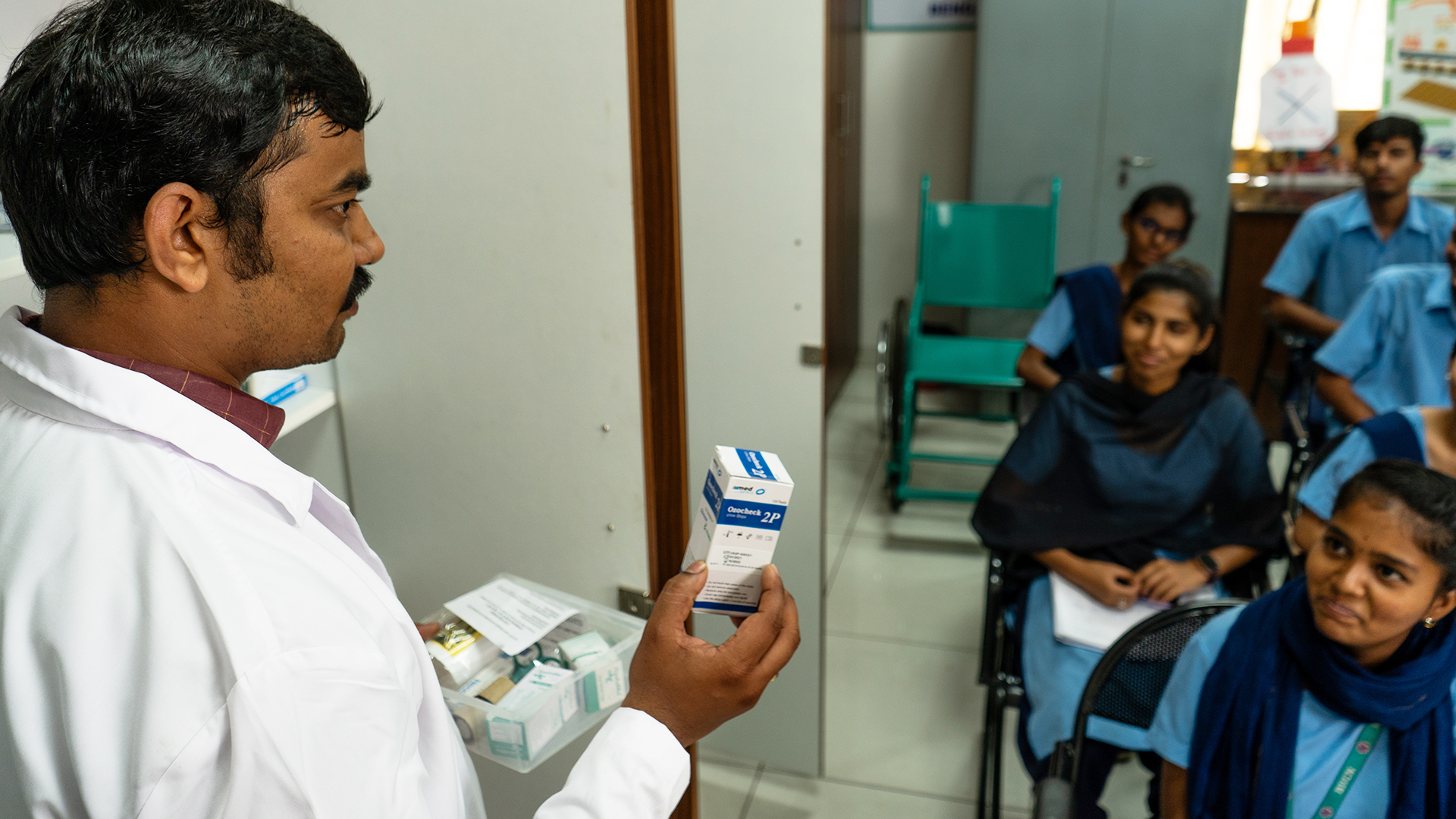
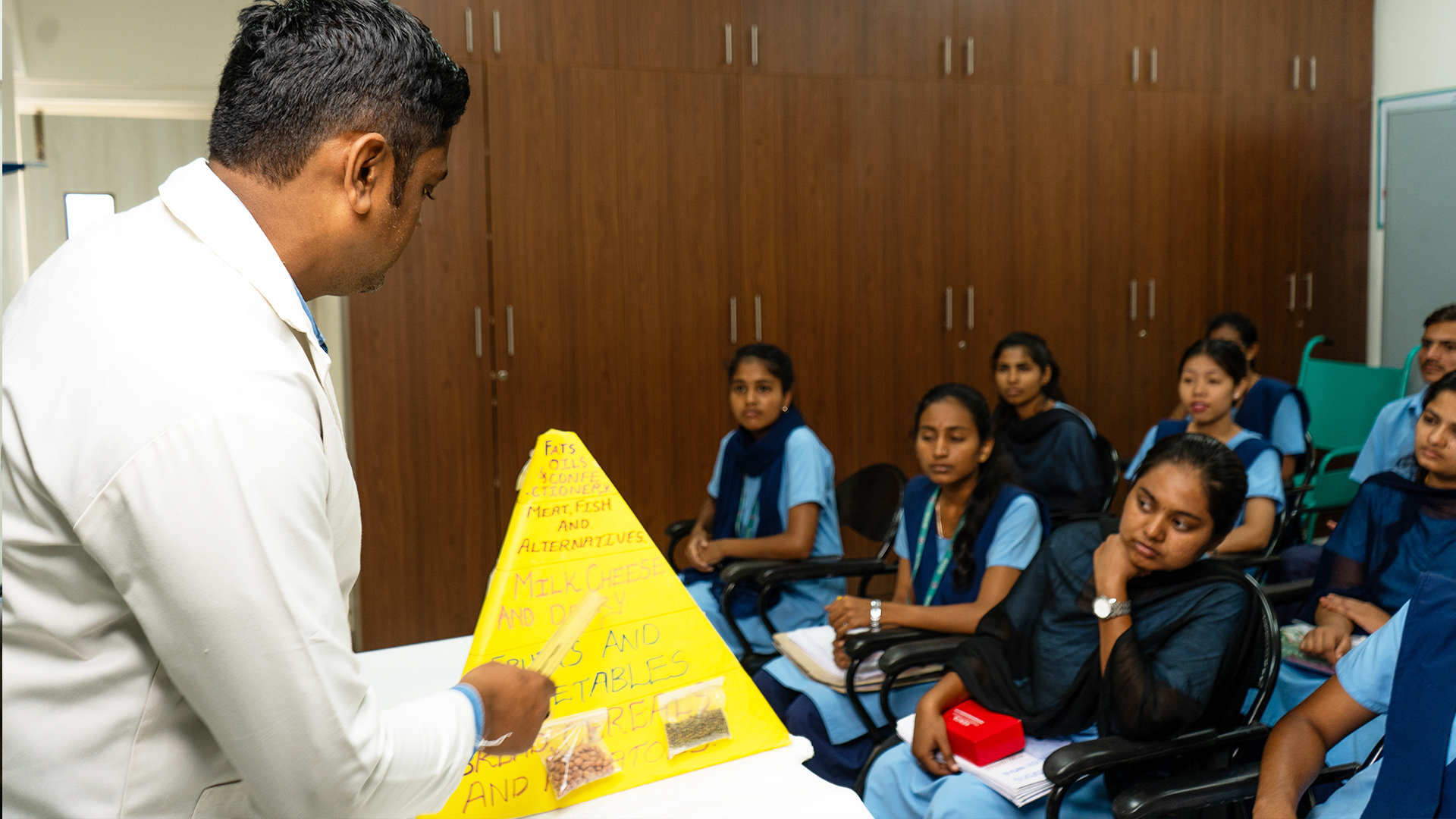
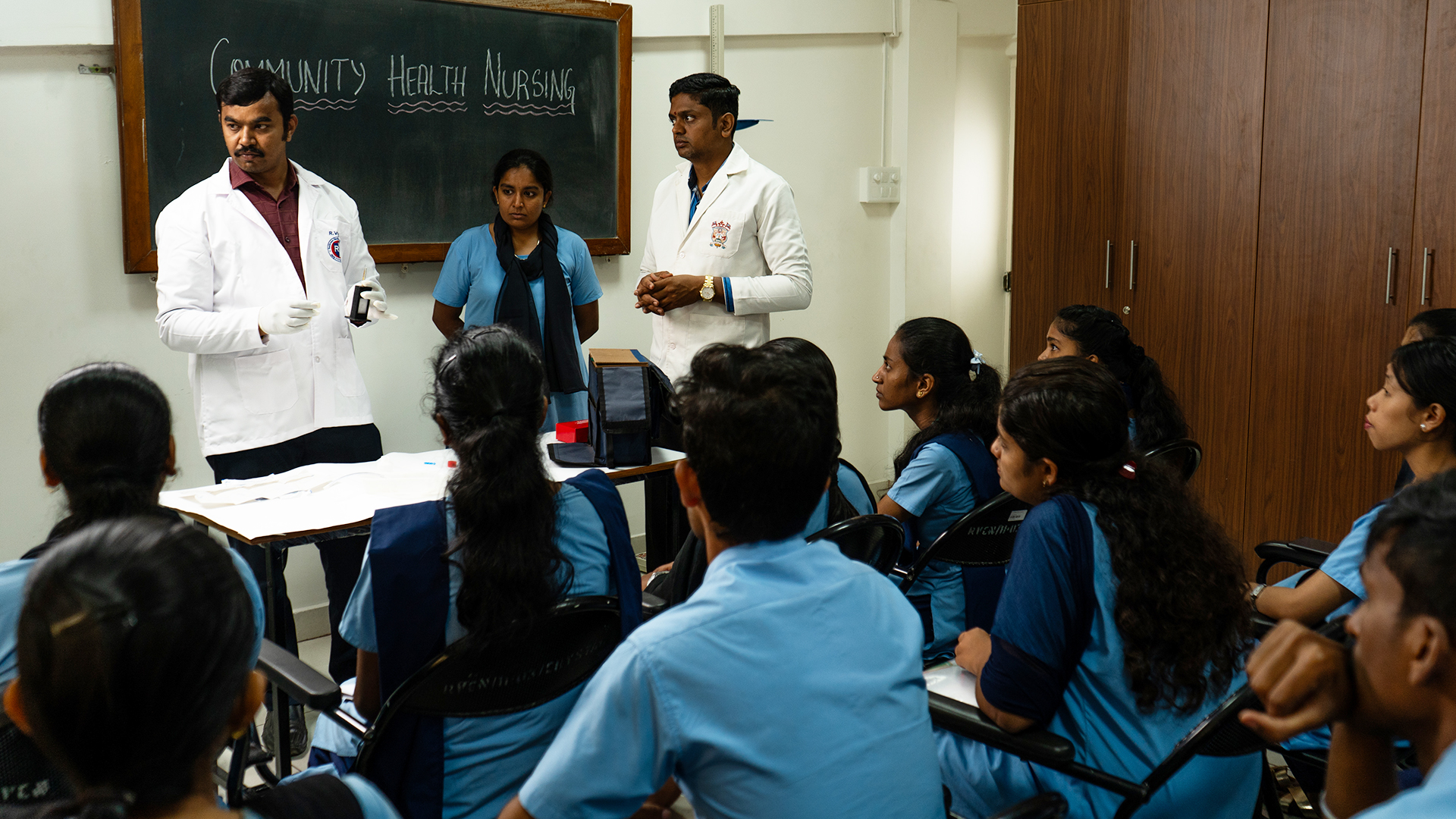
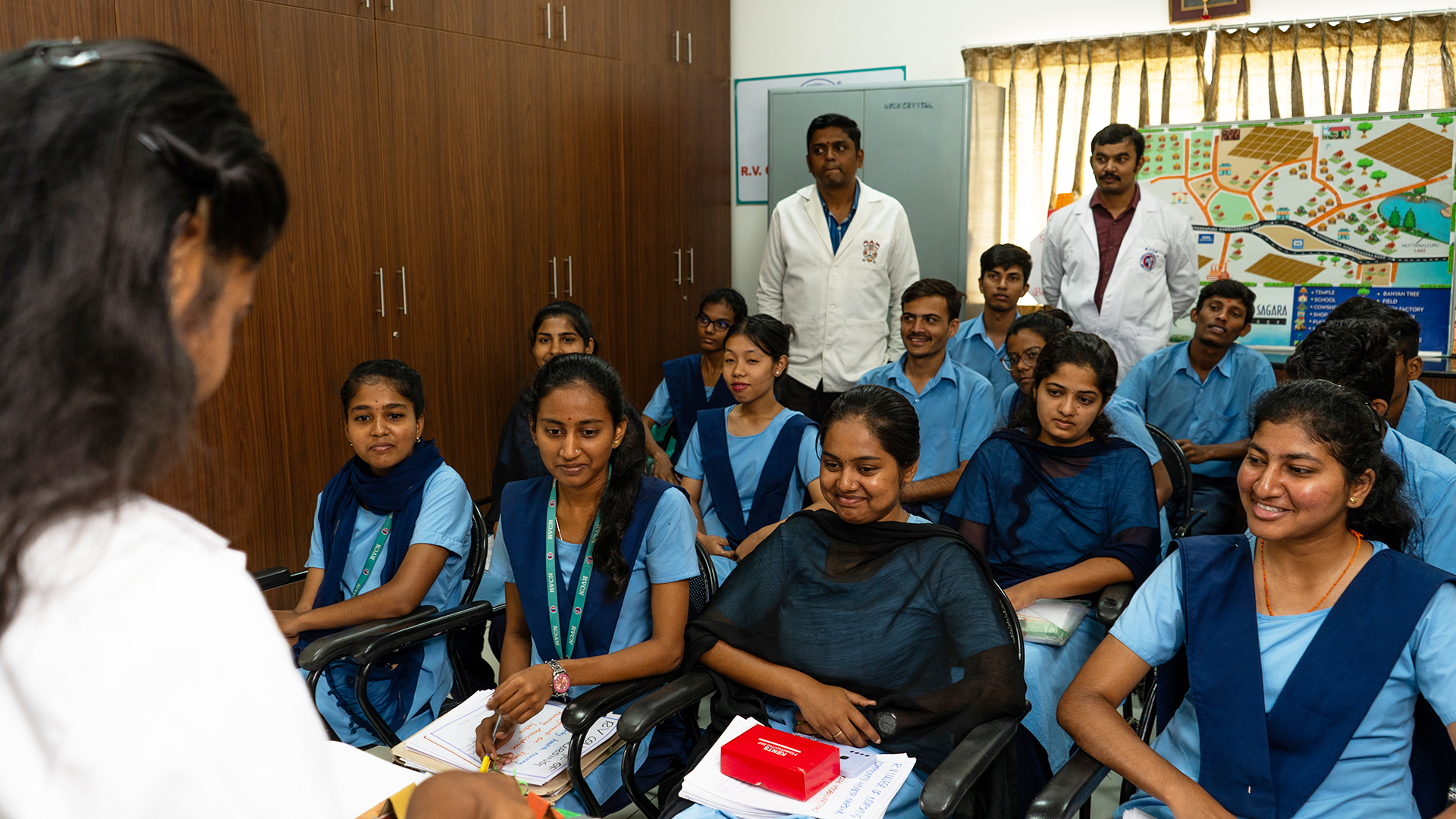
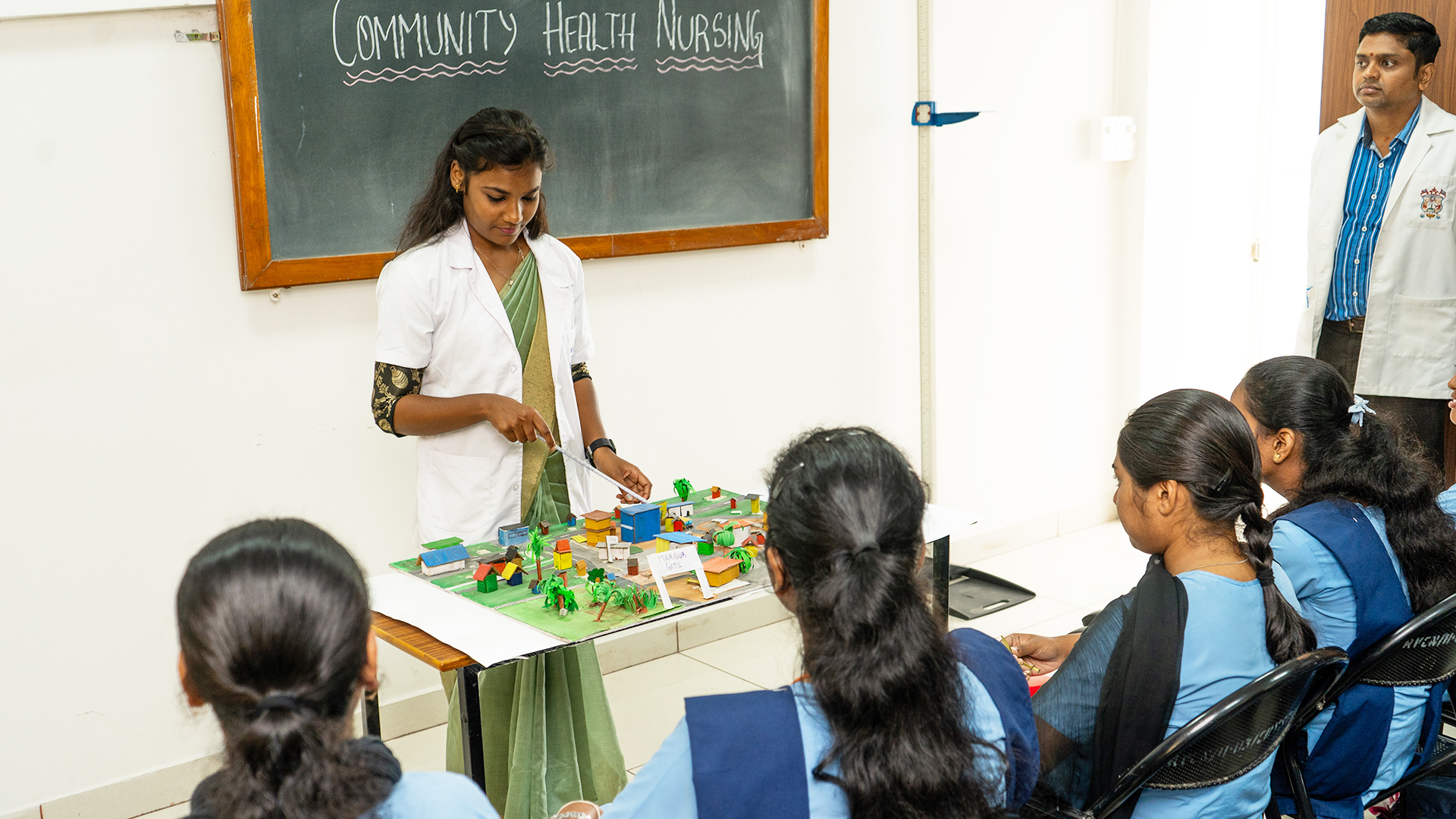
The Department of Medical Surgical Nursing provides courses related to adult nursing as well as advanced nursing practice within the framework of the curriculum of the RV College of Nursing and the Indian Nursing Council (INC). The department provides student-centred teaching and learning in a conducive atmosphere for hands-on experience that helps the students gain confidence in their nursing knowledge, skills, and attitude in practice. The faculty of the department focuses on the student’s knowledge, skills, and altitudinal acquisition to meet the demands of changing patient demographics, disease severity, and complexities in healthcare technologies. Family members and their concerns are equally looked at when it comes to caring for patients in the critical care unit. The scope of practice in medical and surgical nursing is evidence-based in terms of procedural aspects and patient care. The subject is well thought out and put across in second- and third-year B.Sc. nursing to cover the entire health system logically. Critical procedures in patient care are trained through simulated patients so as to gain expertise and confidence in the students and thereby practise in the clinical areas. The course offers the opportunity for students to learn about adult health problems, including geriatrics, so as to equip them with an understanding of providing comprehensive care.
Fundamentals of nursing
The Department of Fundamentals of Nursing trains B.Sc. nursing students in the development of clinical bedside skills. Undergraduate students are equipped to provide comprehensive nursing care to patients in the pre-clinical laboratory before they are exposed to real hospital situations. The main aim of the department is to mould beginners with the right attitude towards the nursing profession. We provide a perfect foundation for first-year BSc students through quality education. Apart from their academic commitments, the department conducts various outreach programmes.
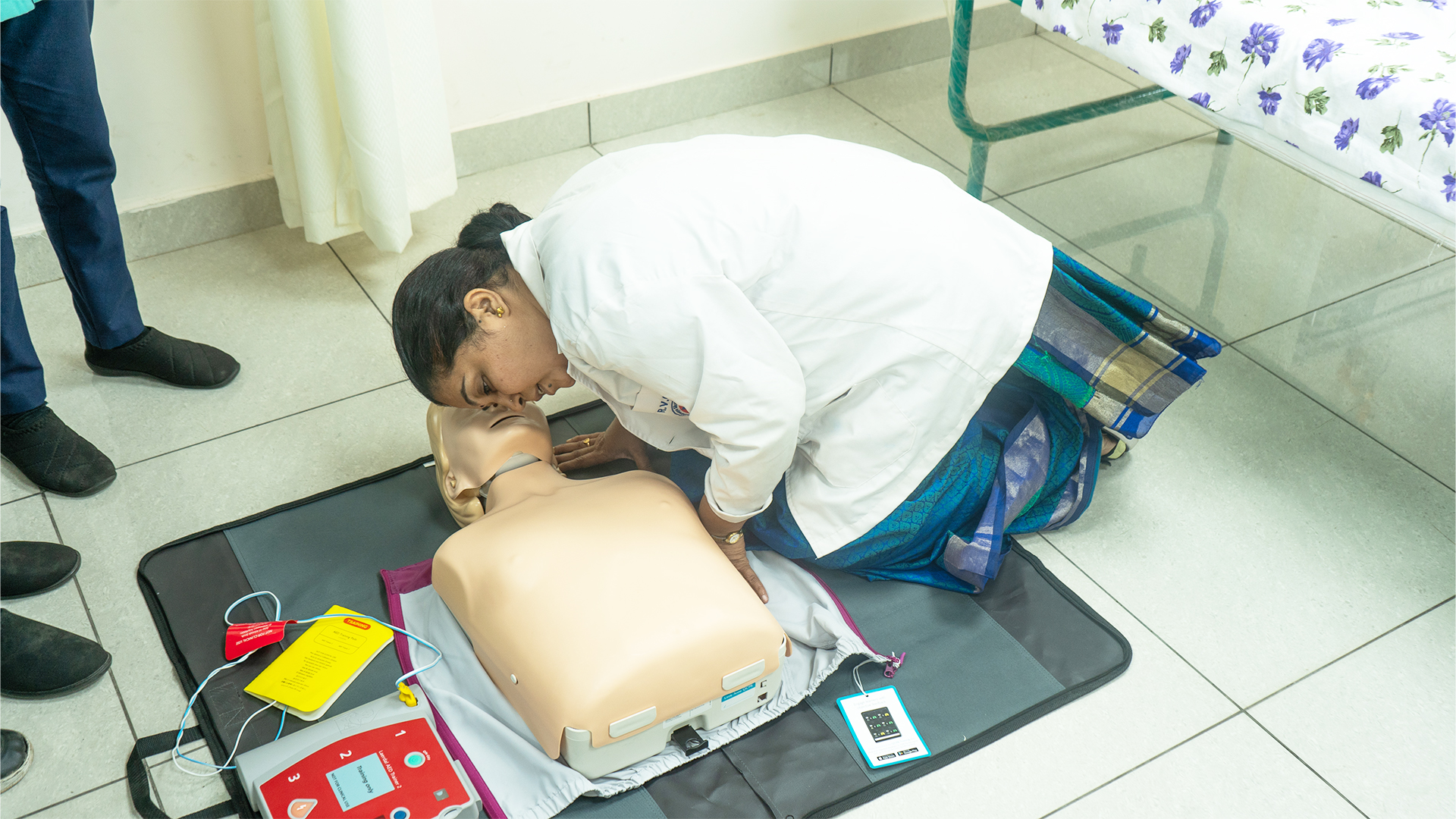
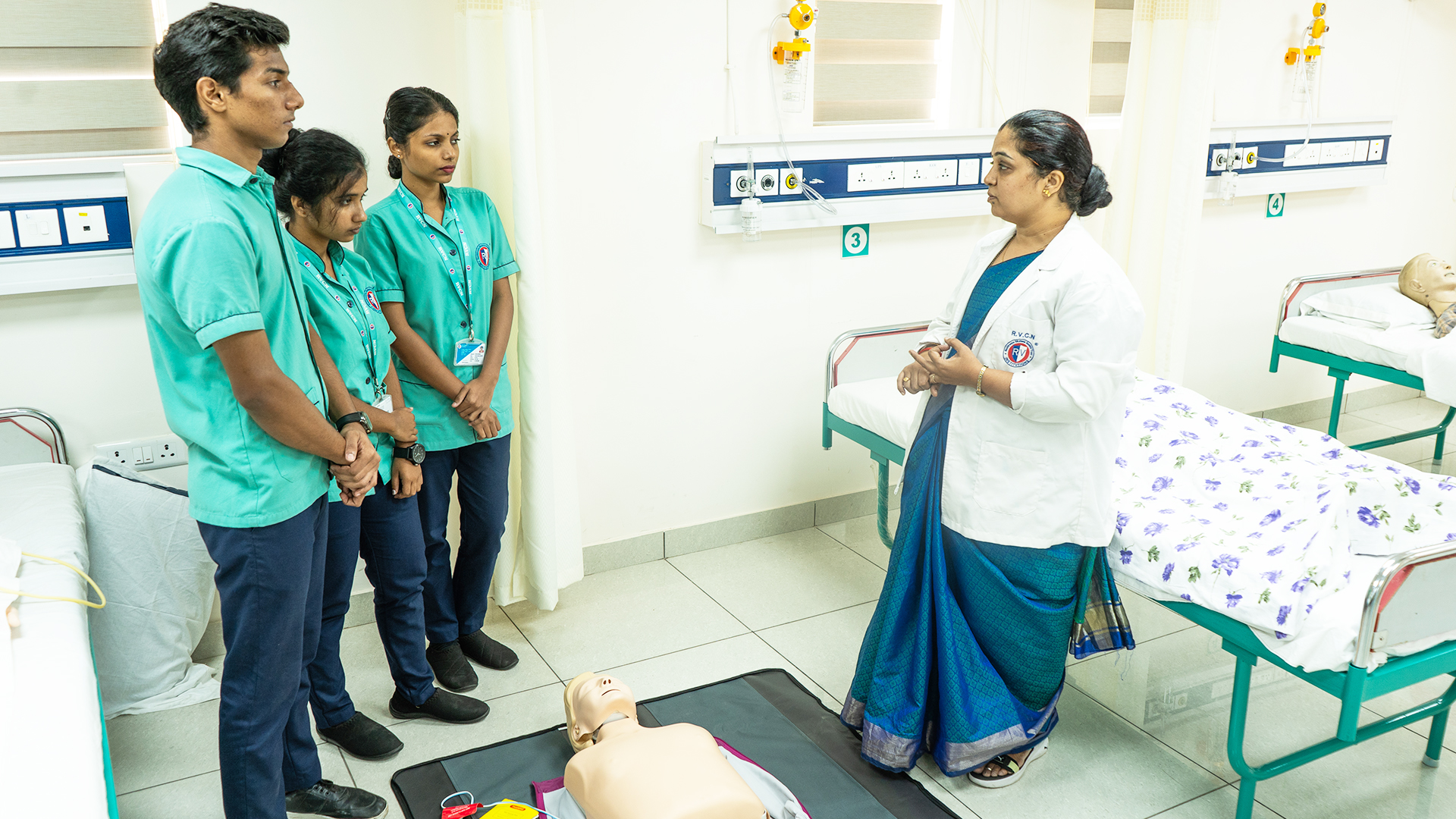
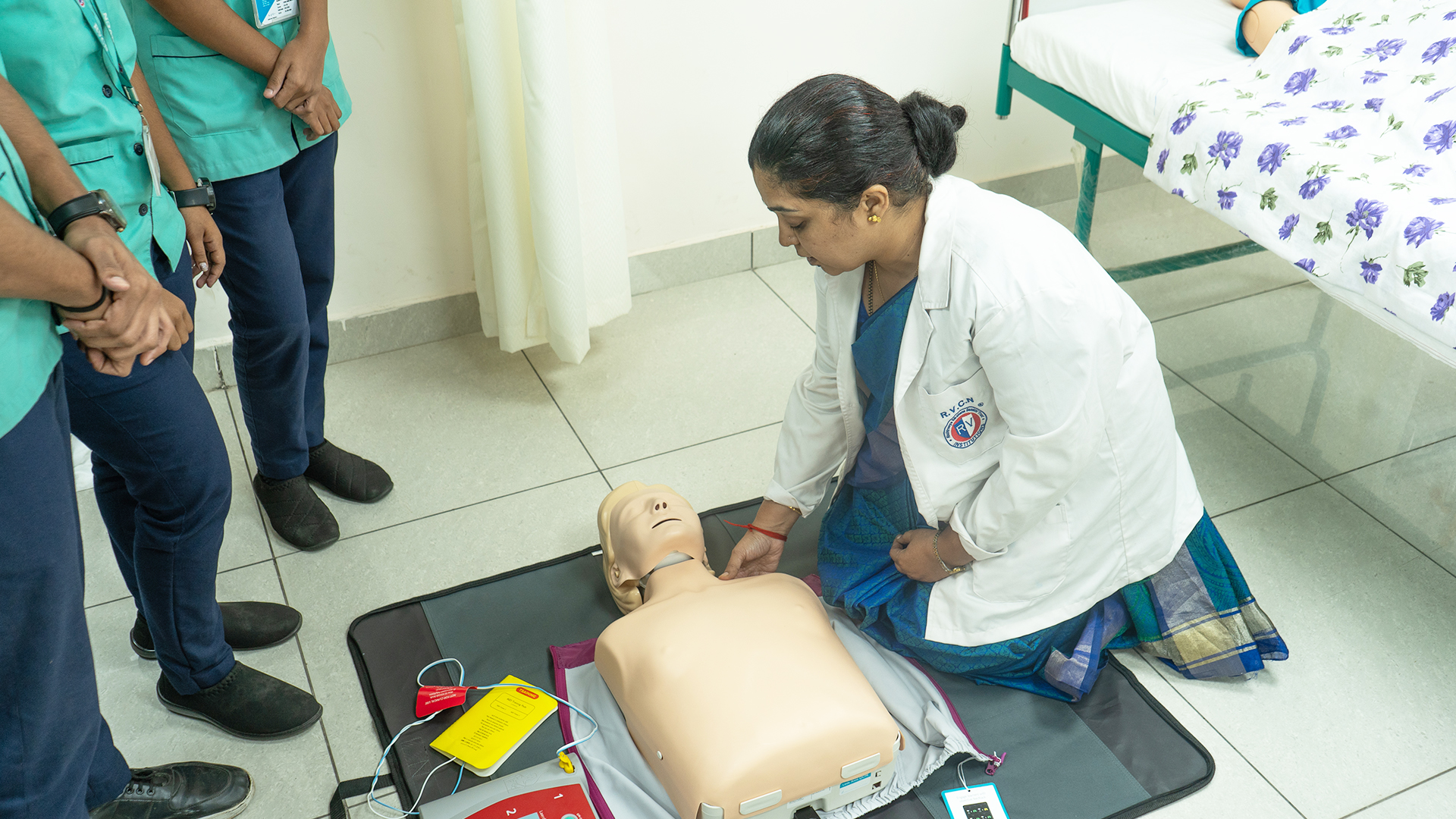
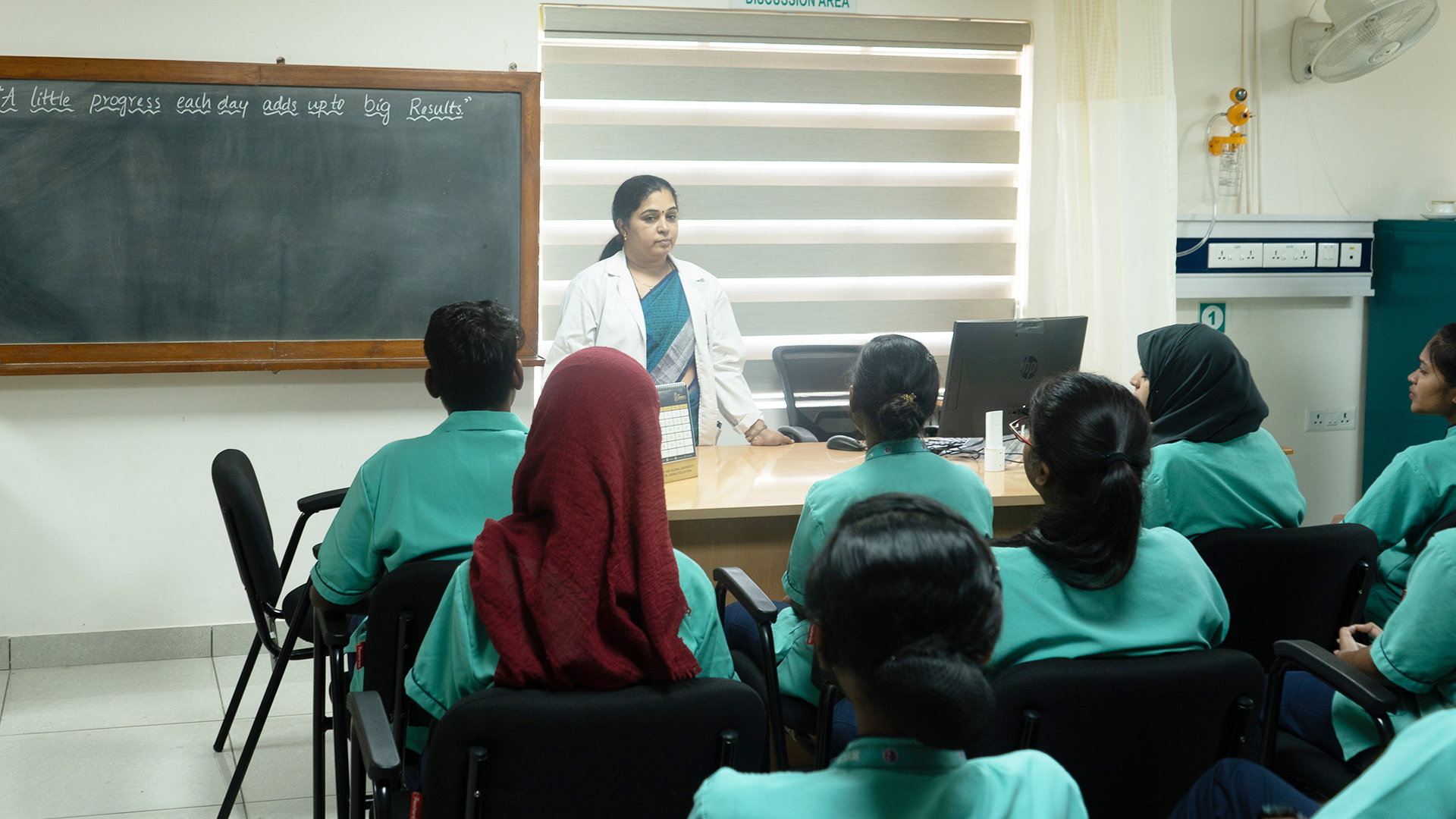
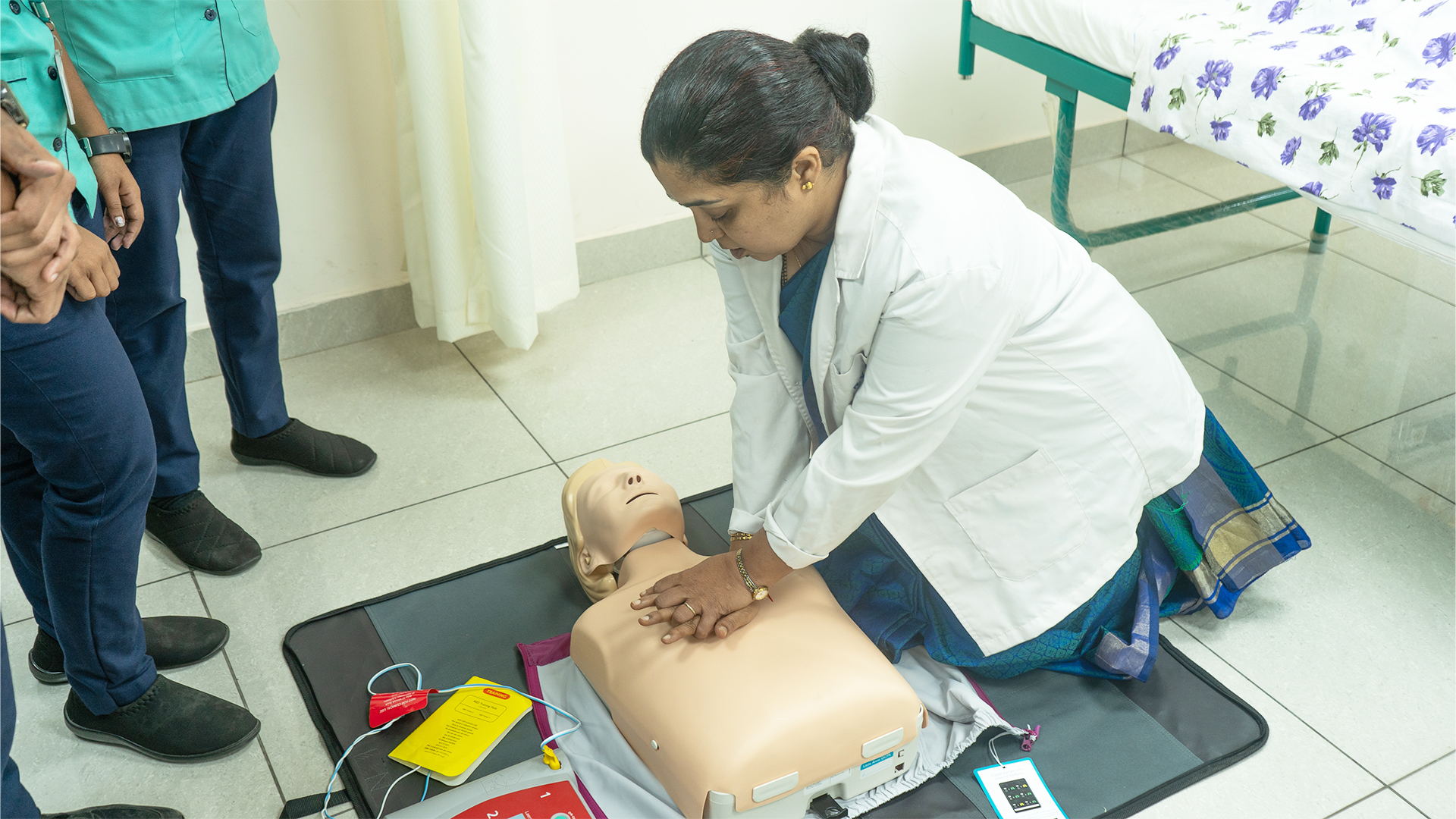
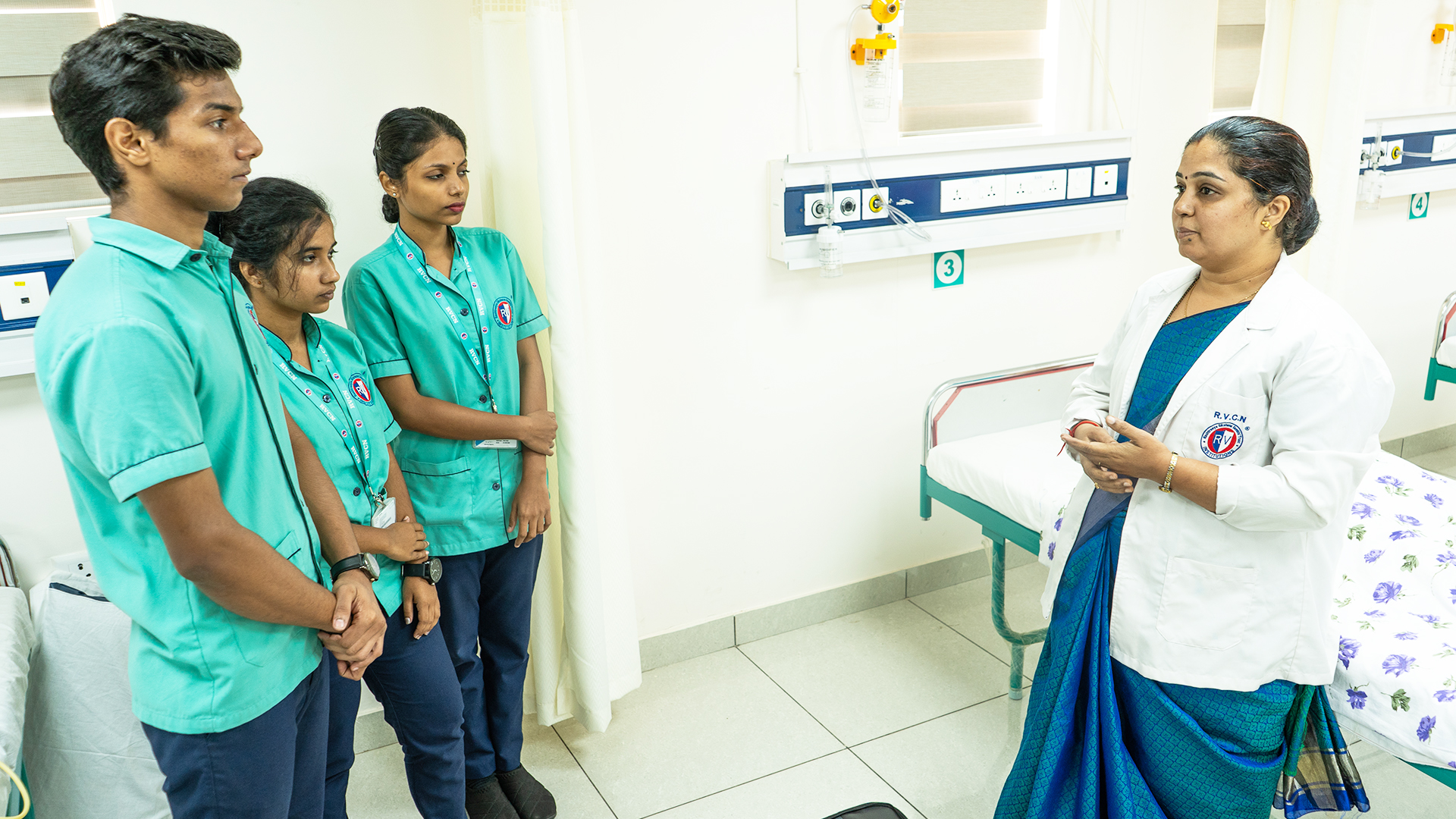
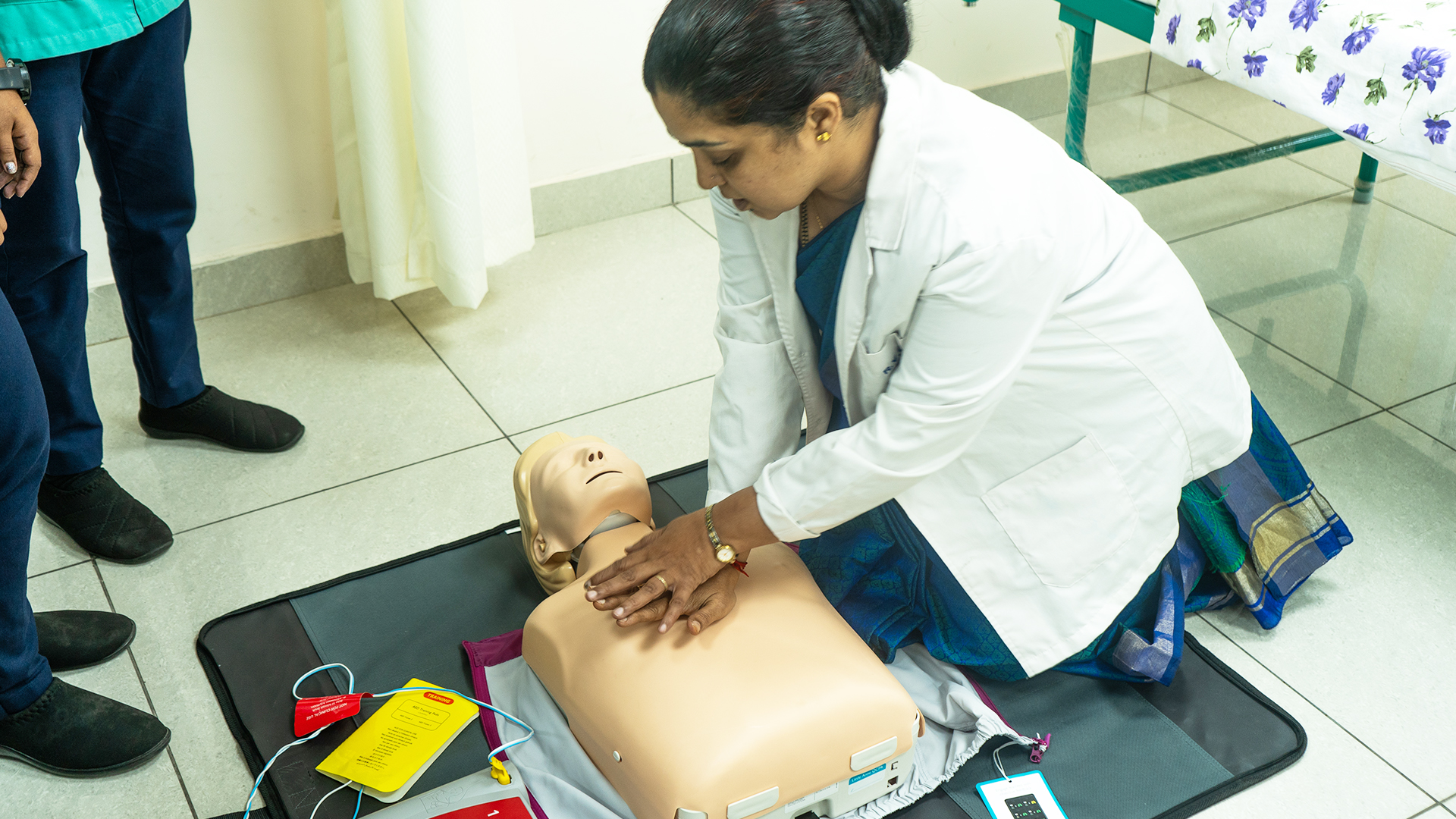
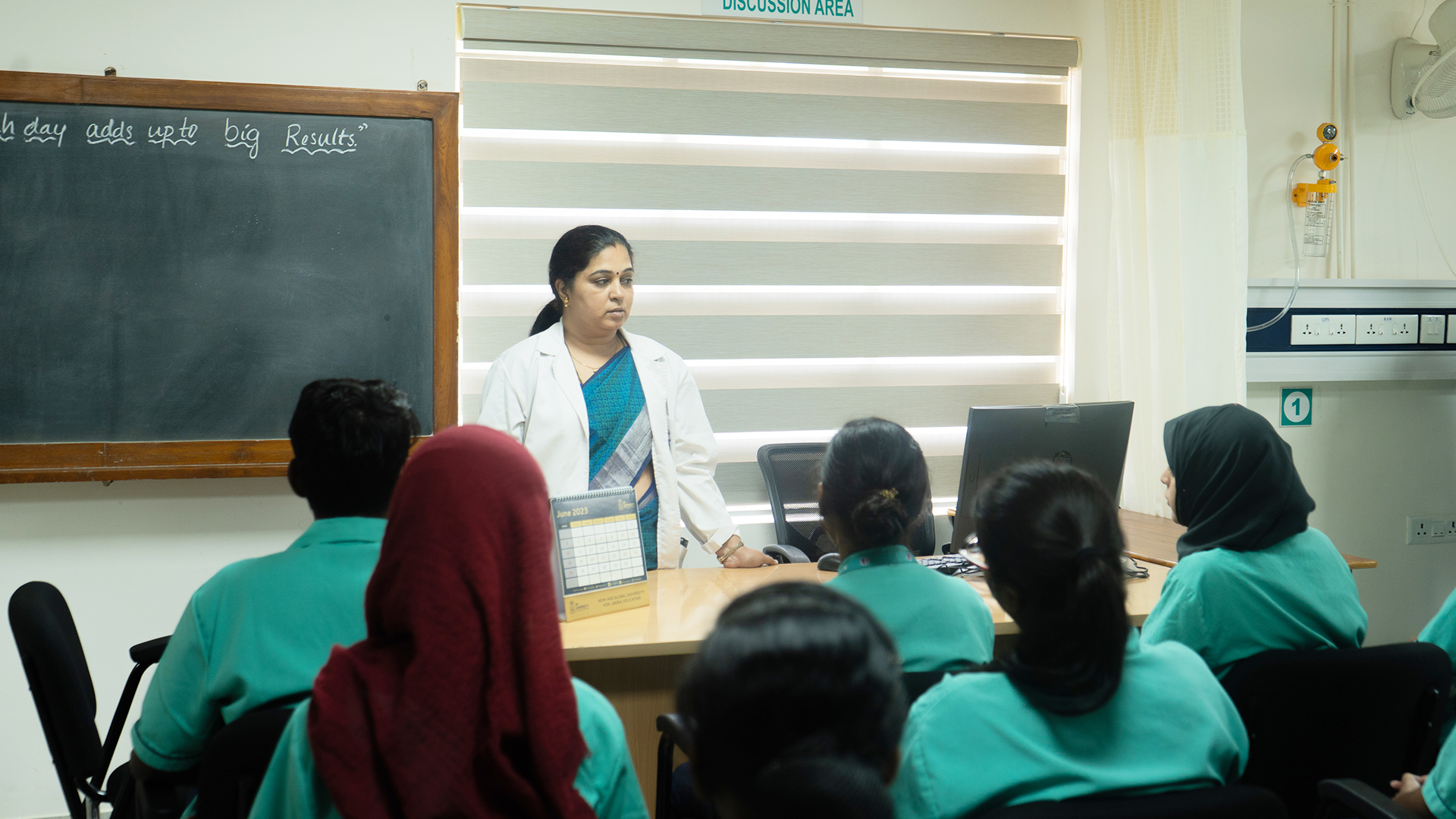
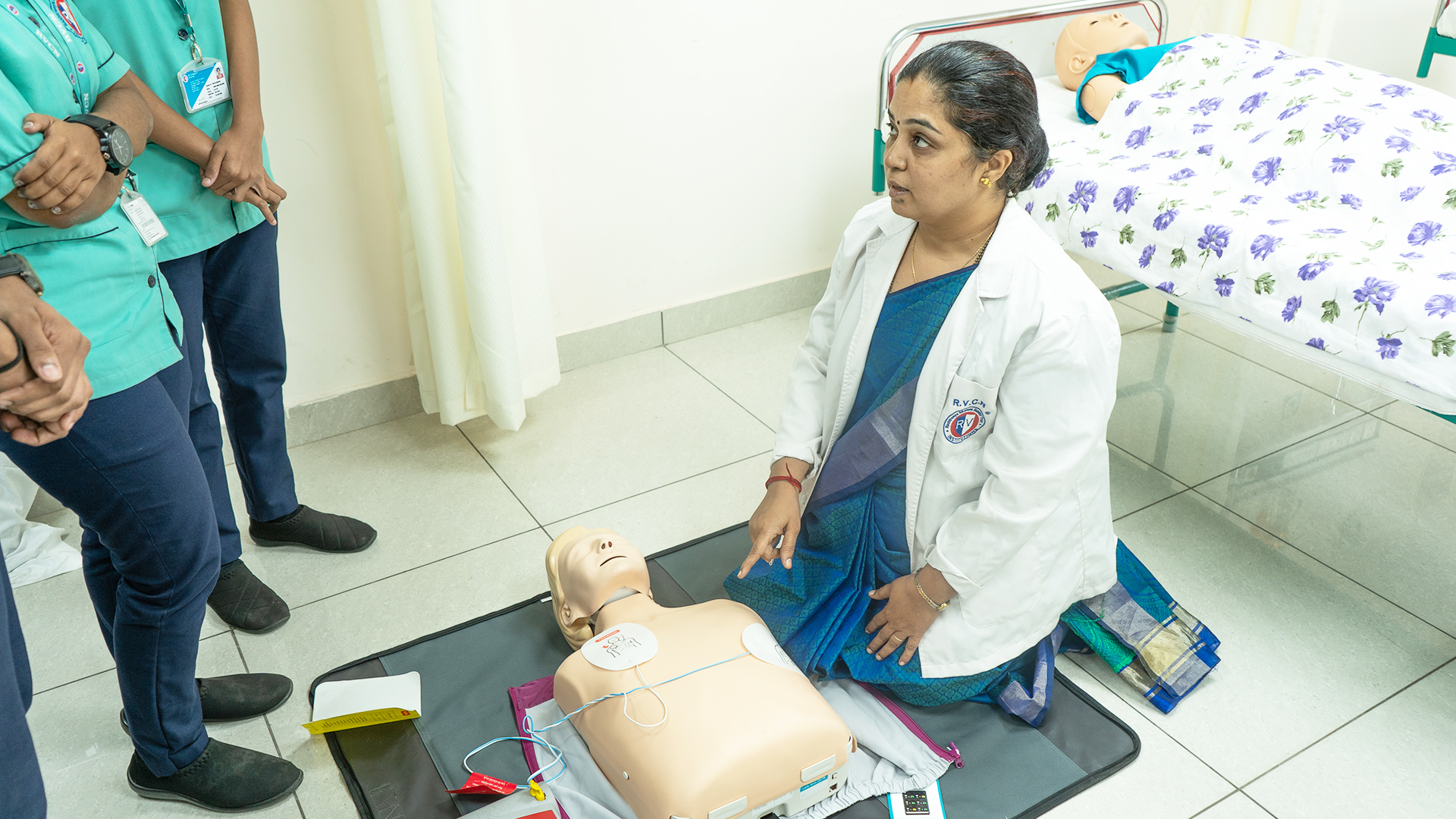
The Department of Obstetrical and Gynaecological Nursing takes pride in quality teaching. It provides courses in obstetrical and gynaecological nursing with theoretical and practical elements for undergraduate students. We prepare our graduates and postgraduates with the necessary skills and knowledge to provide comprehensive maternal and child care. The department encourages student research in the core areas of women’s health, reproductive health, high-risk pregnancy, neonatal care, and related health areas pertaining to women and newborns. We ensure effective and efficient services to our student community and enable them to function as educators, managers, and researchers in the field of maternity nursing.
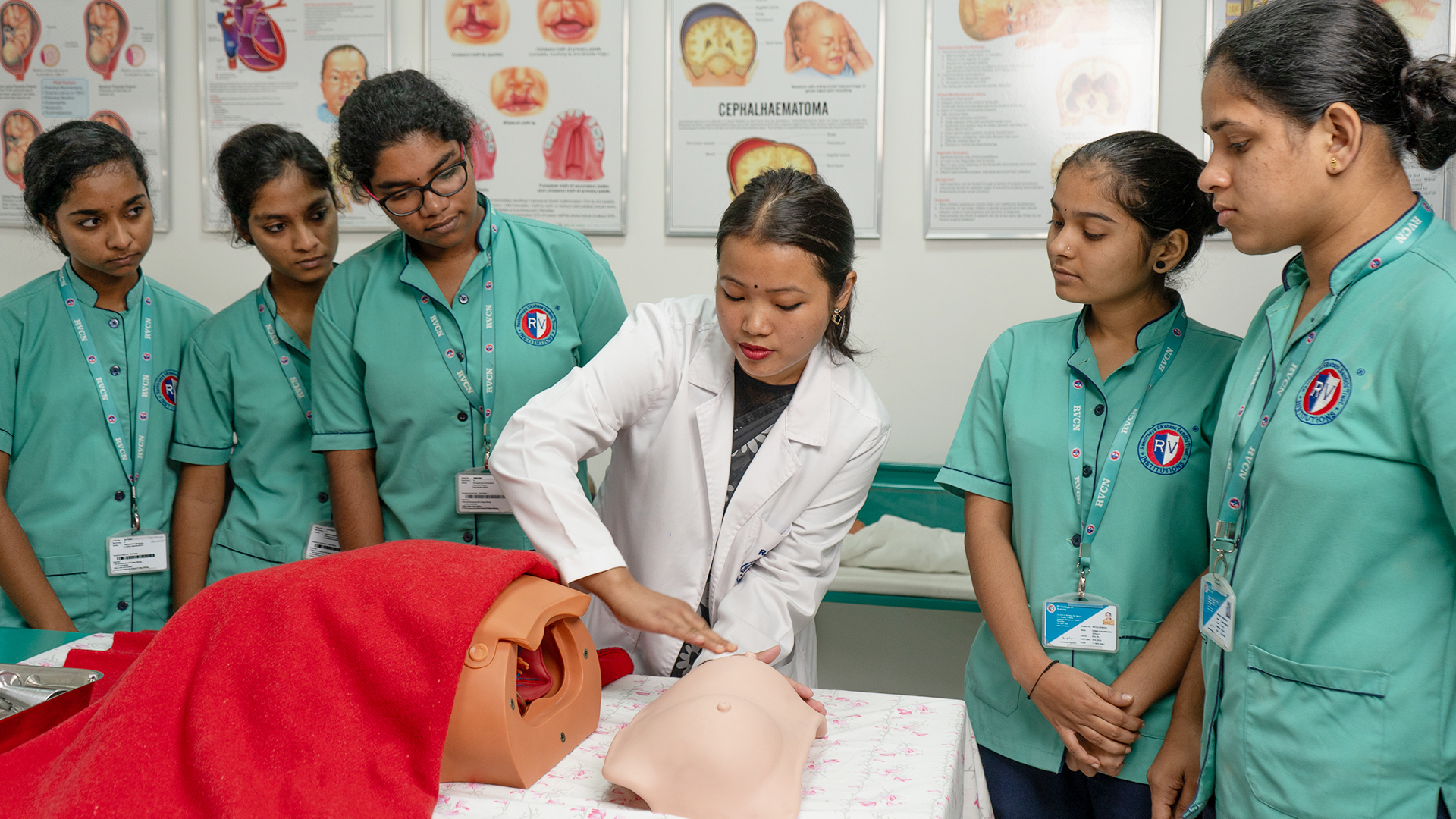
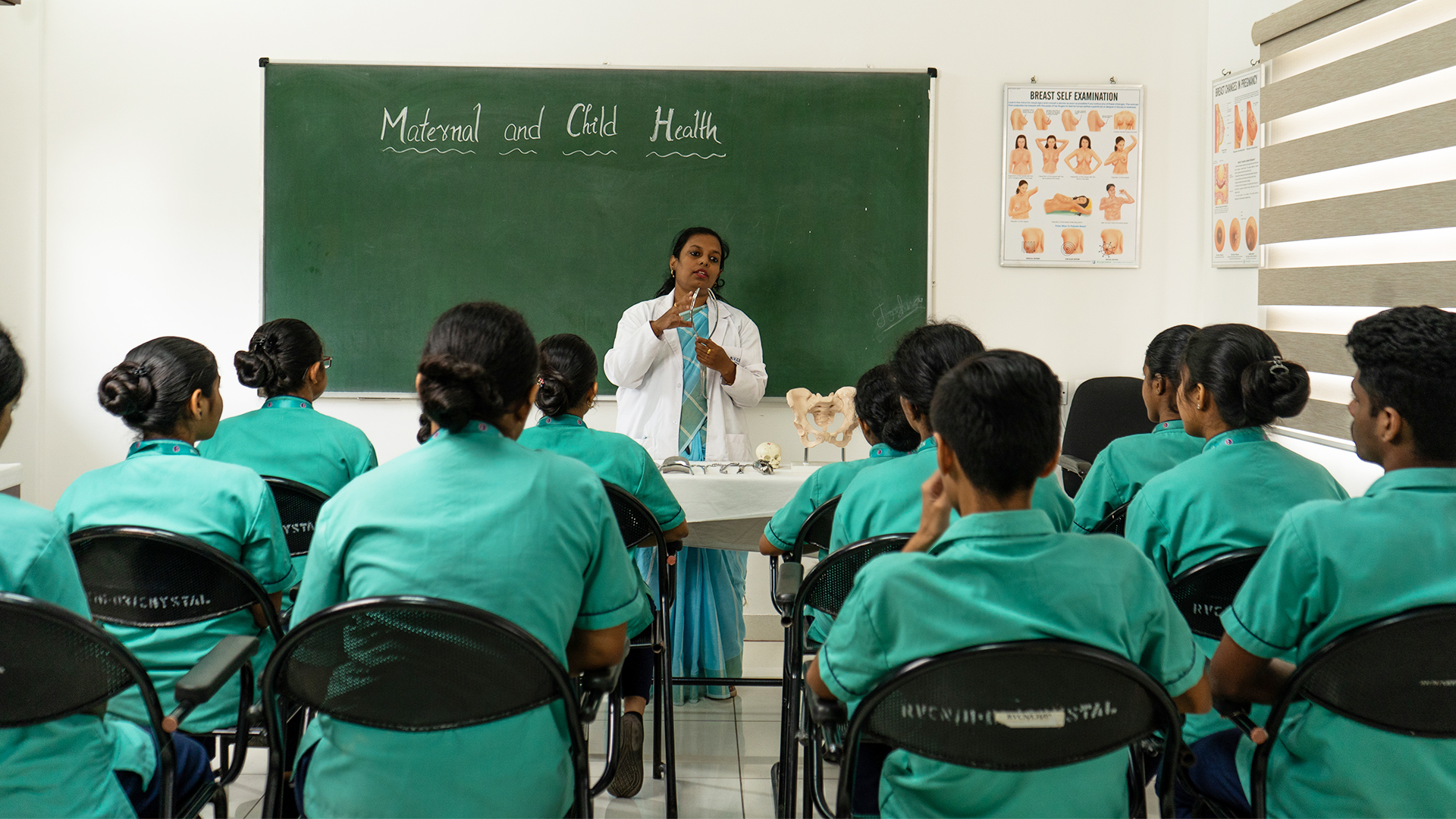
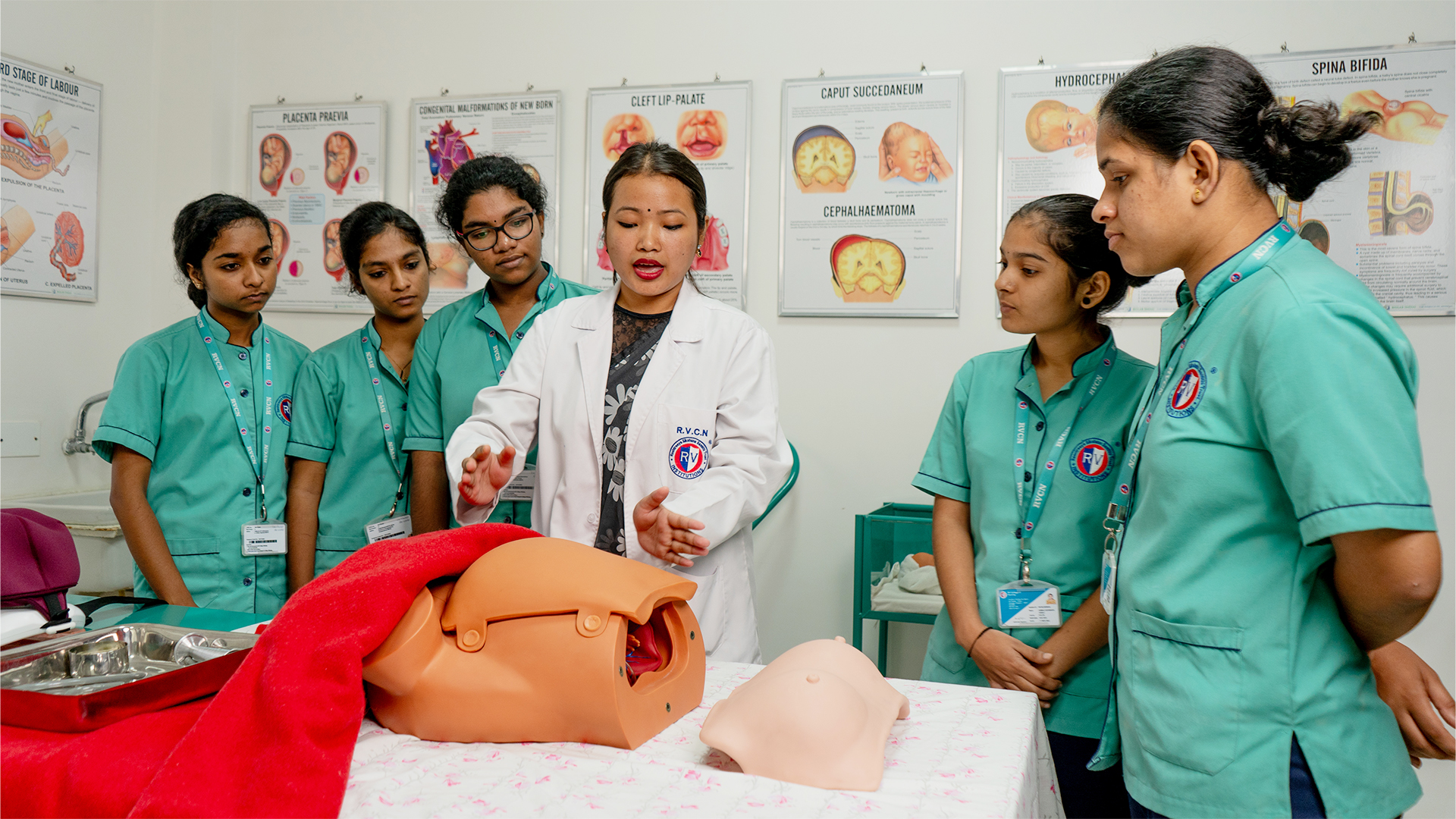
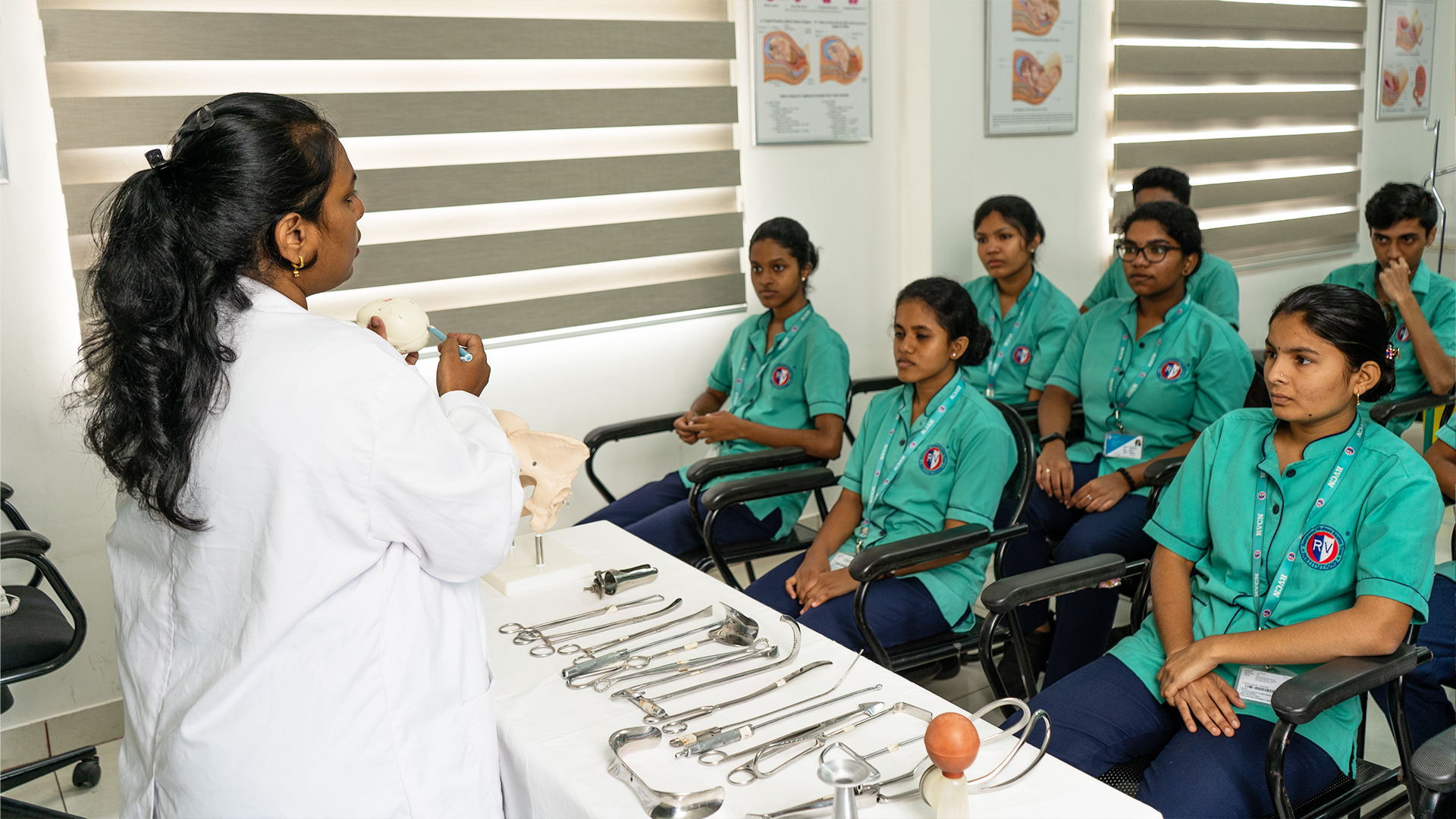
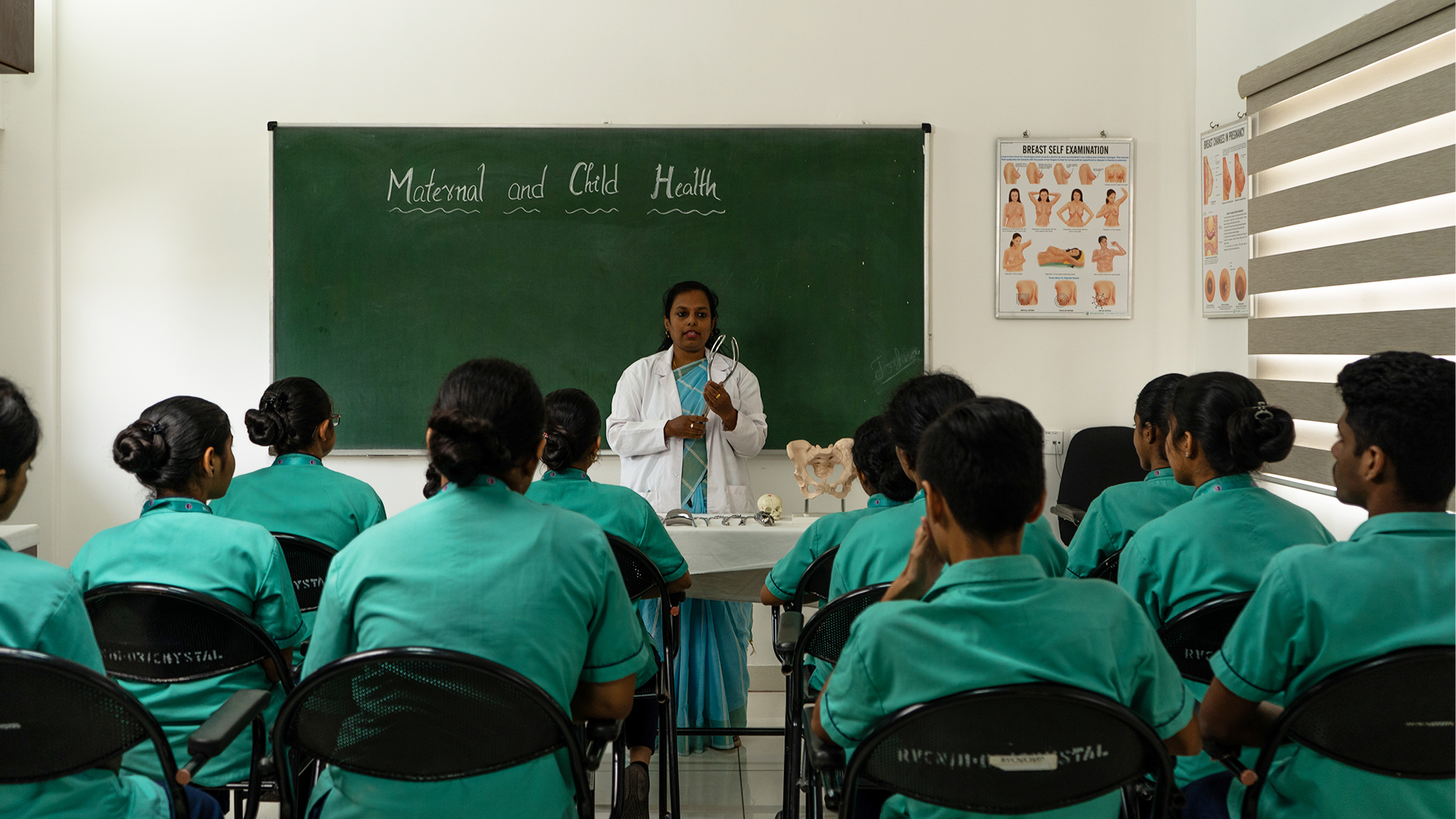
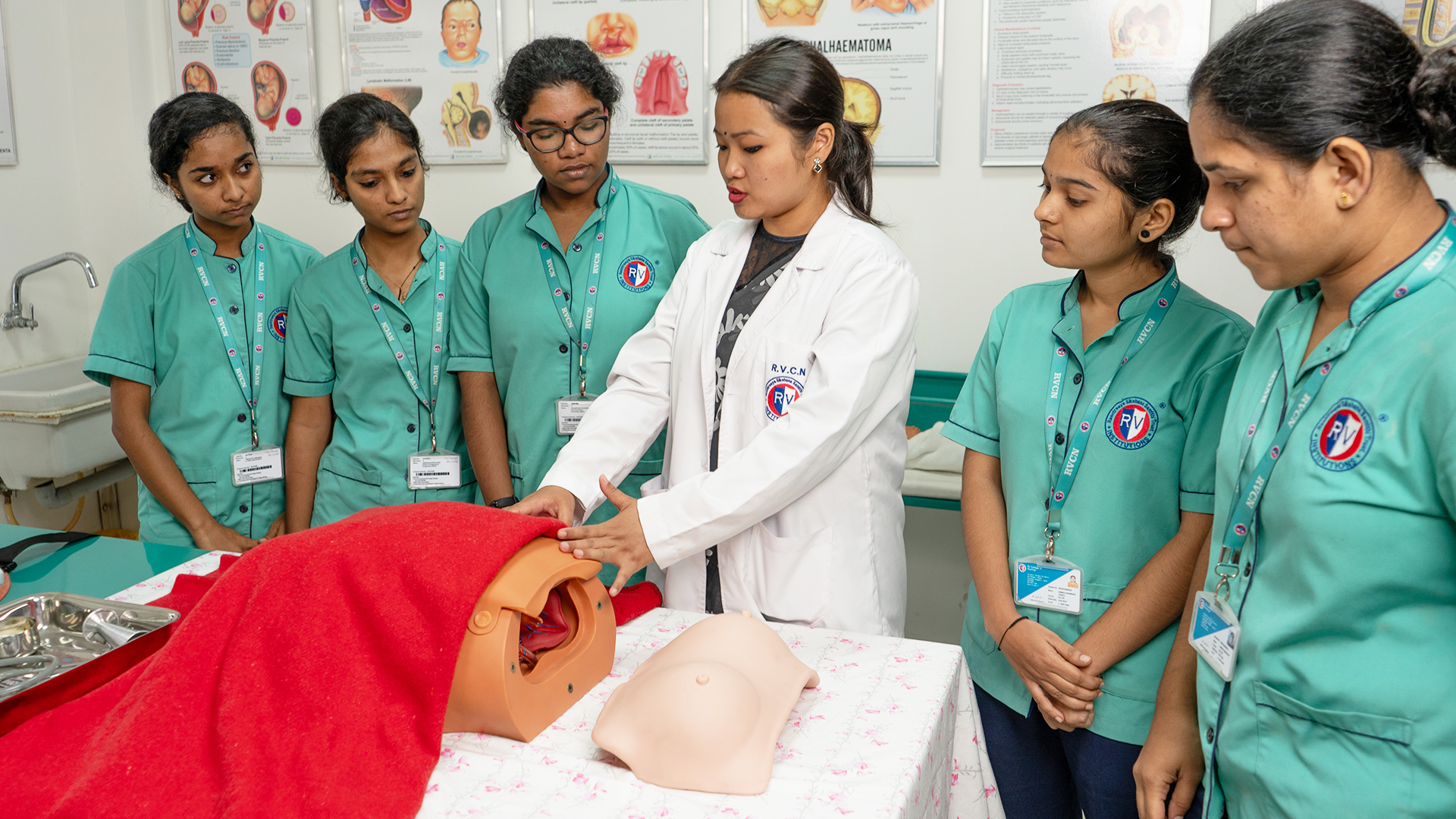
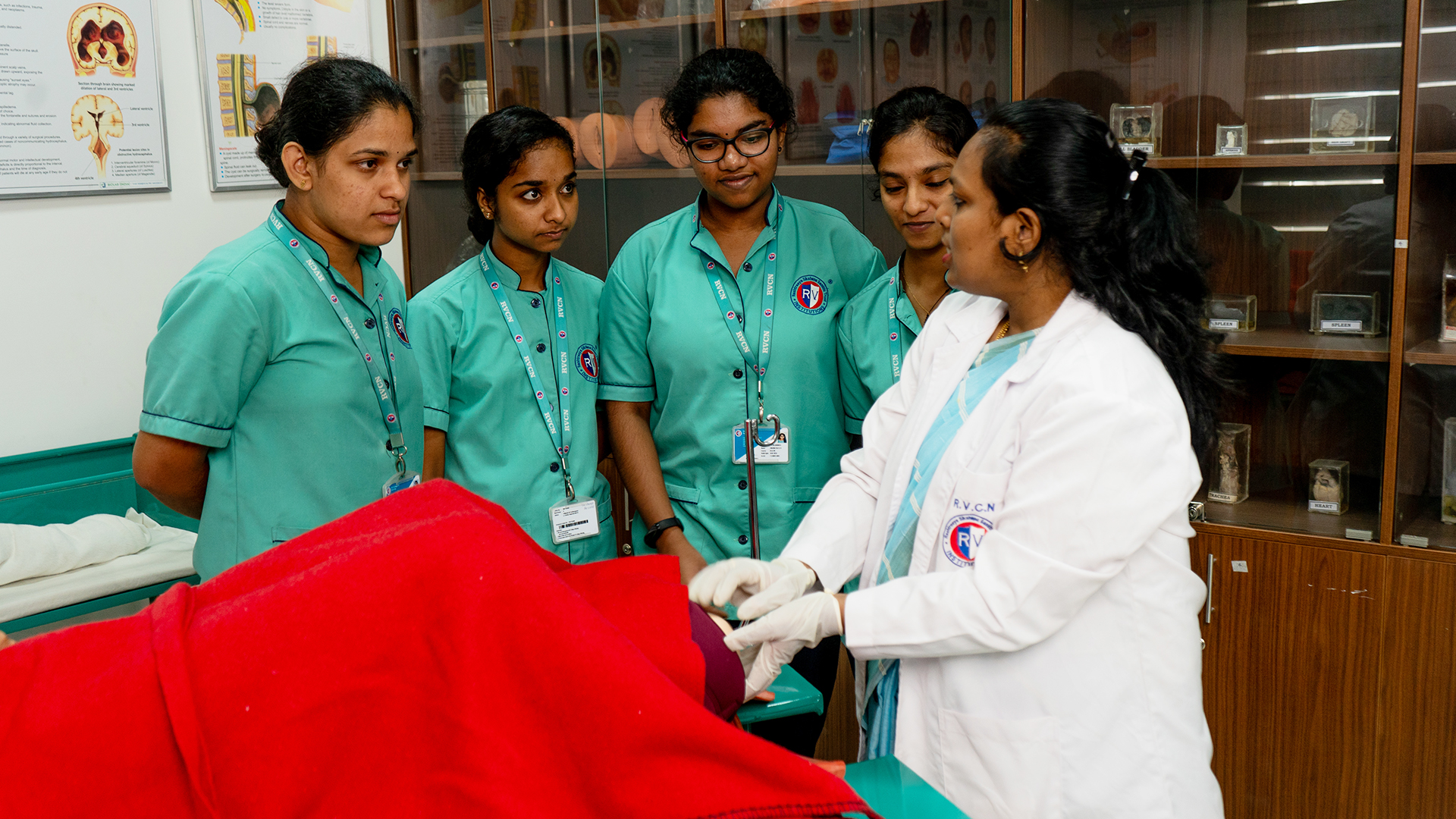
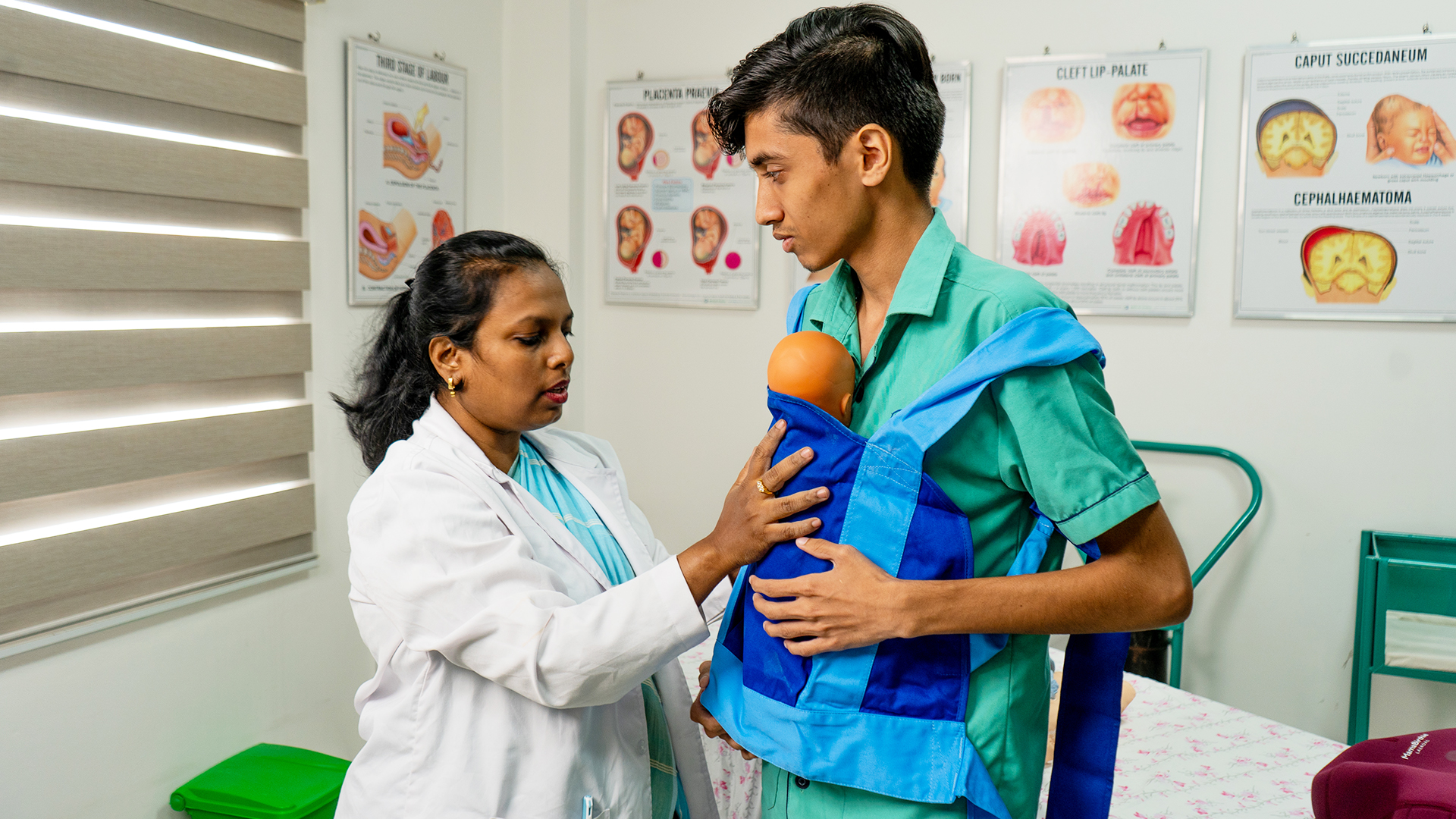
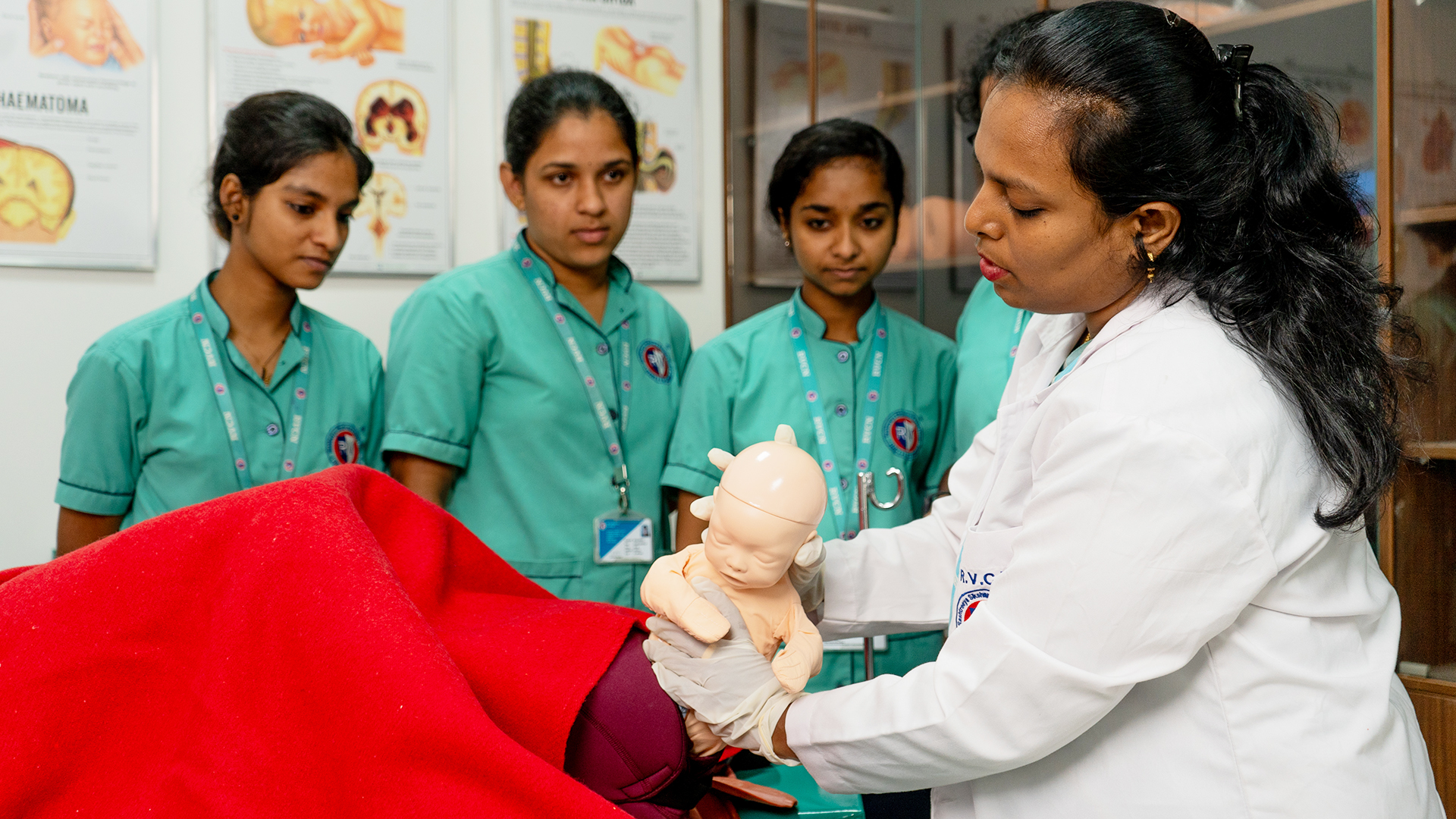
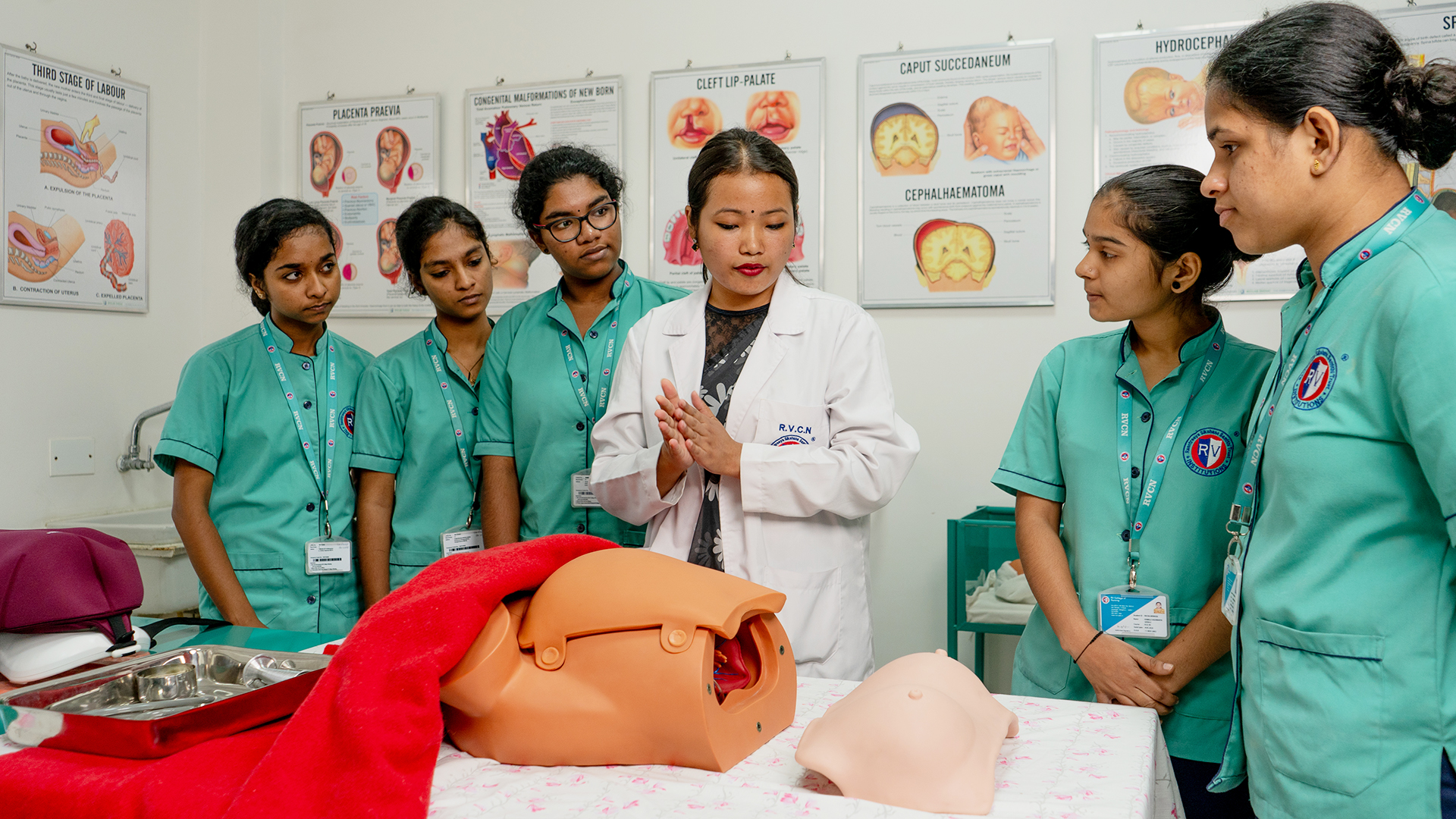
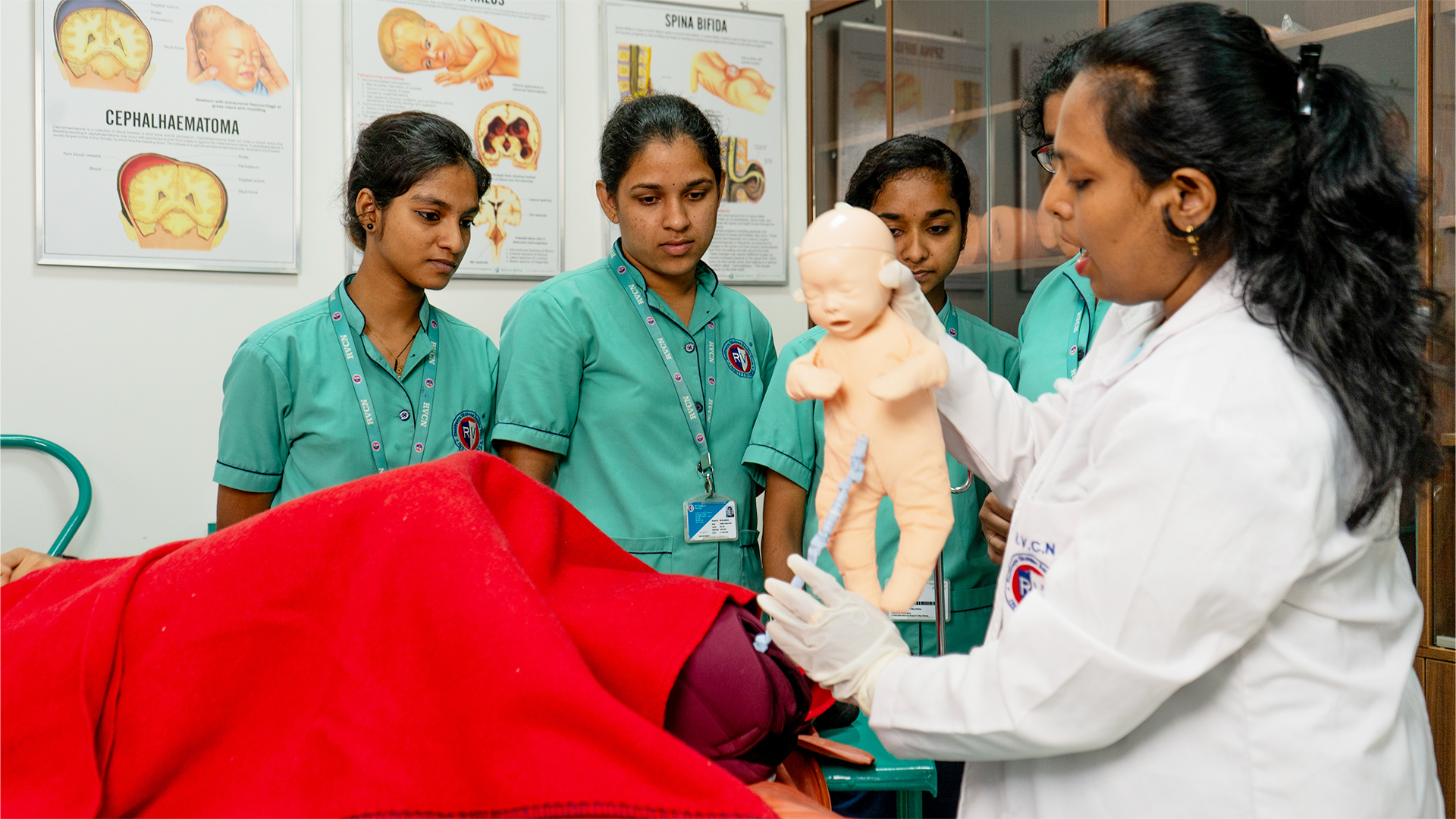
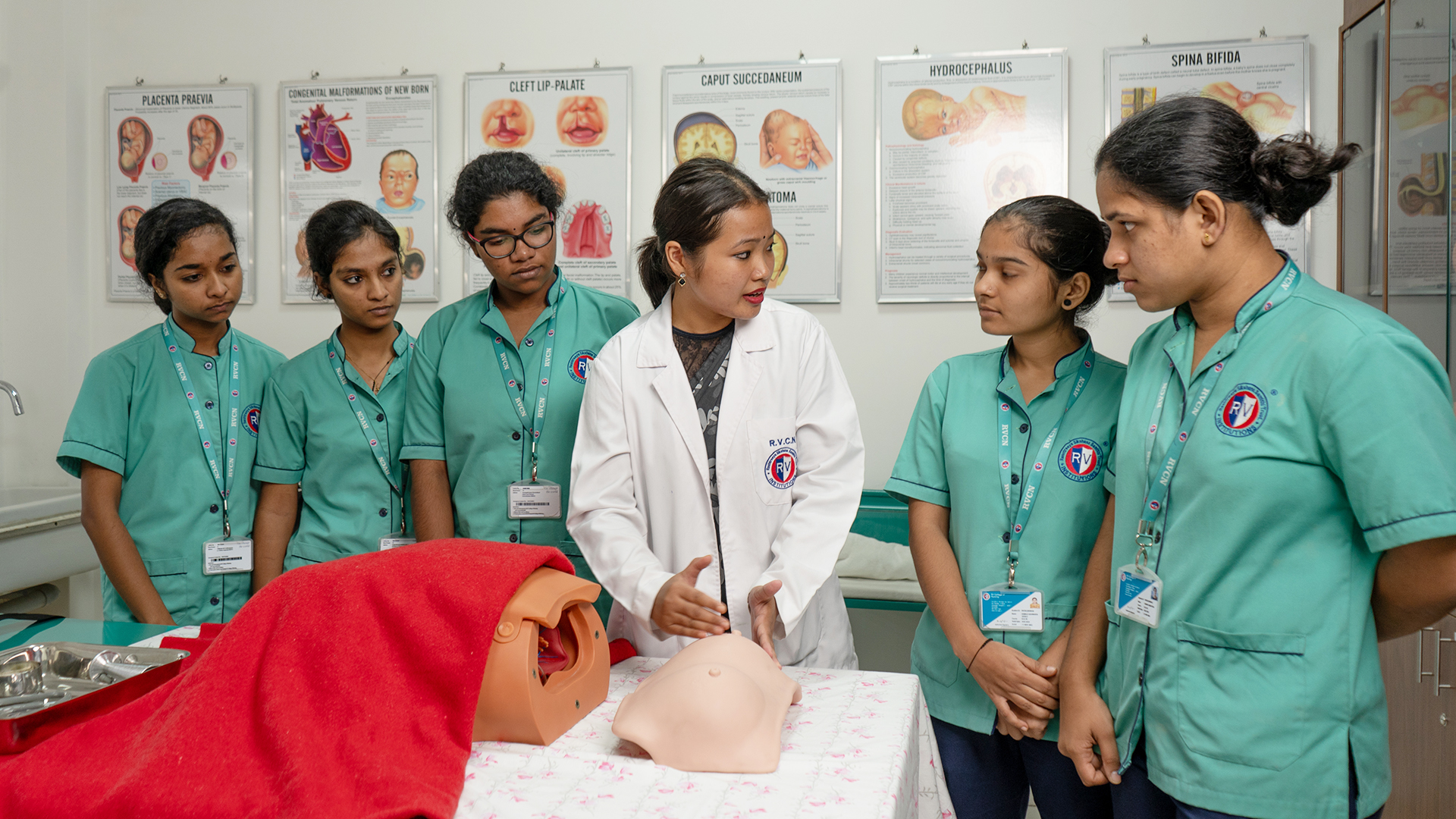
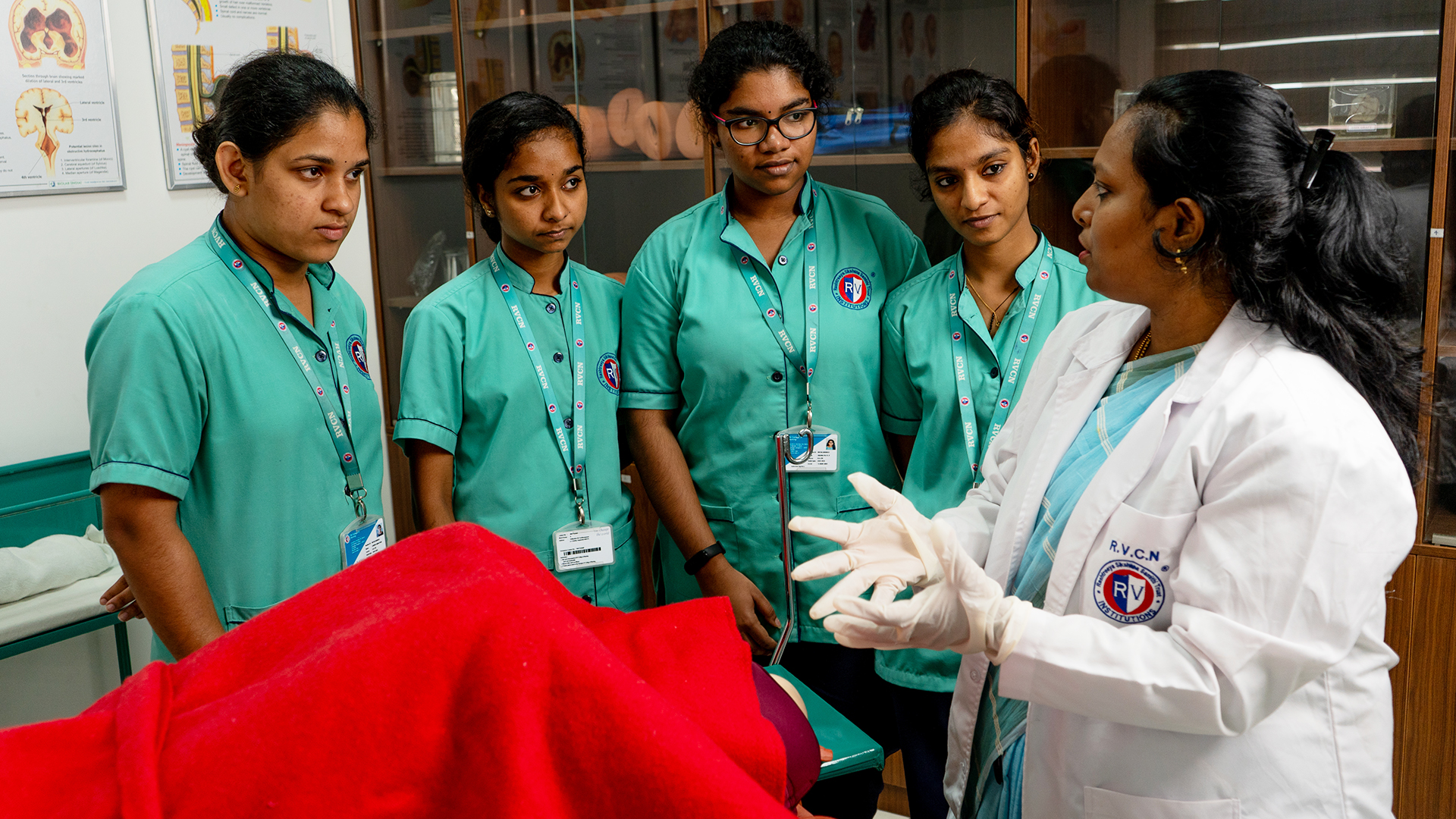
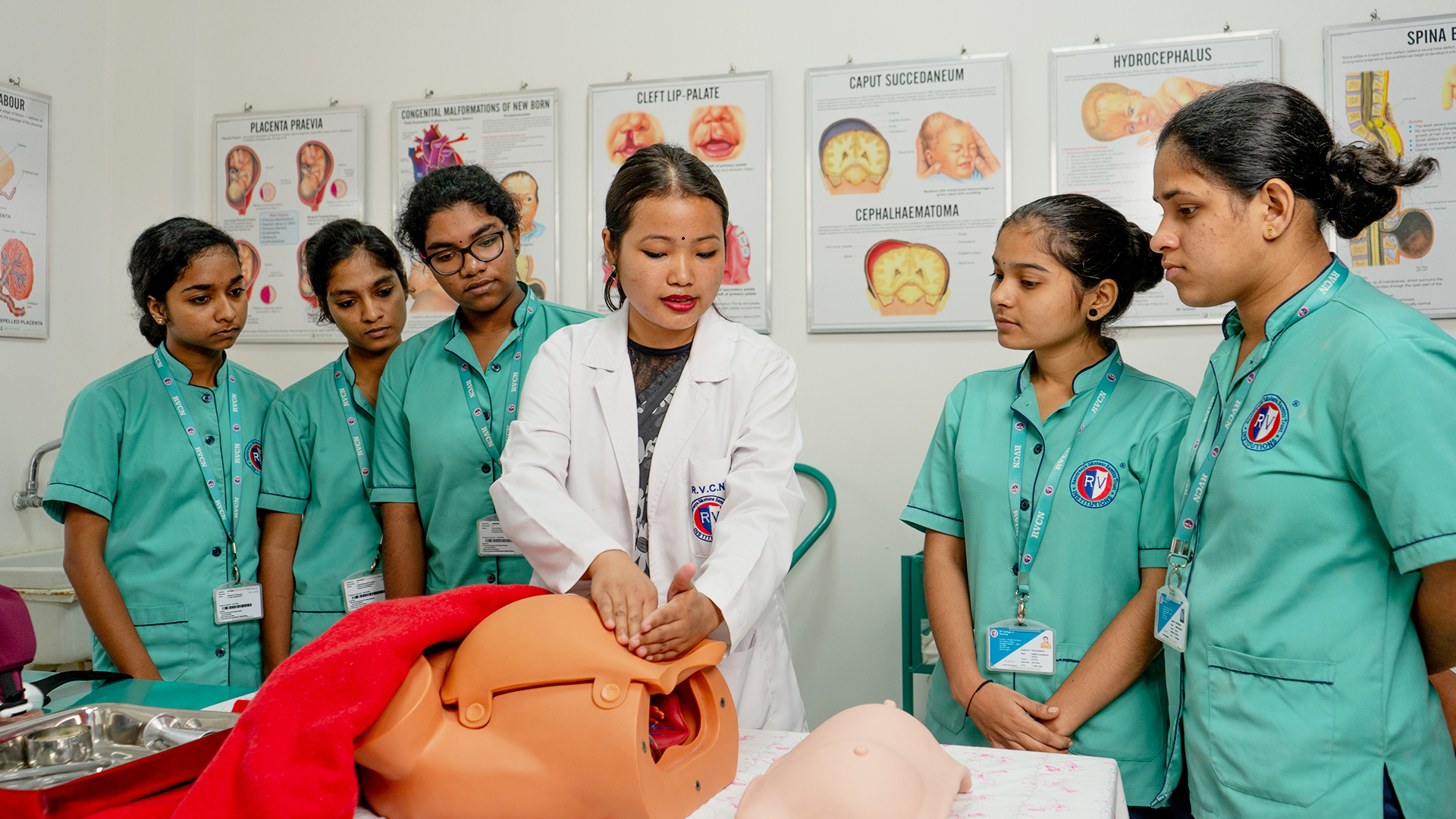
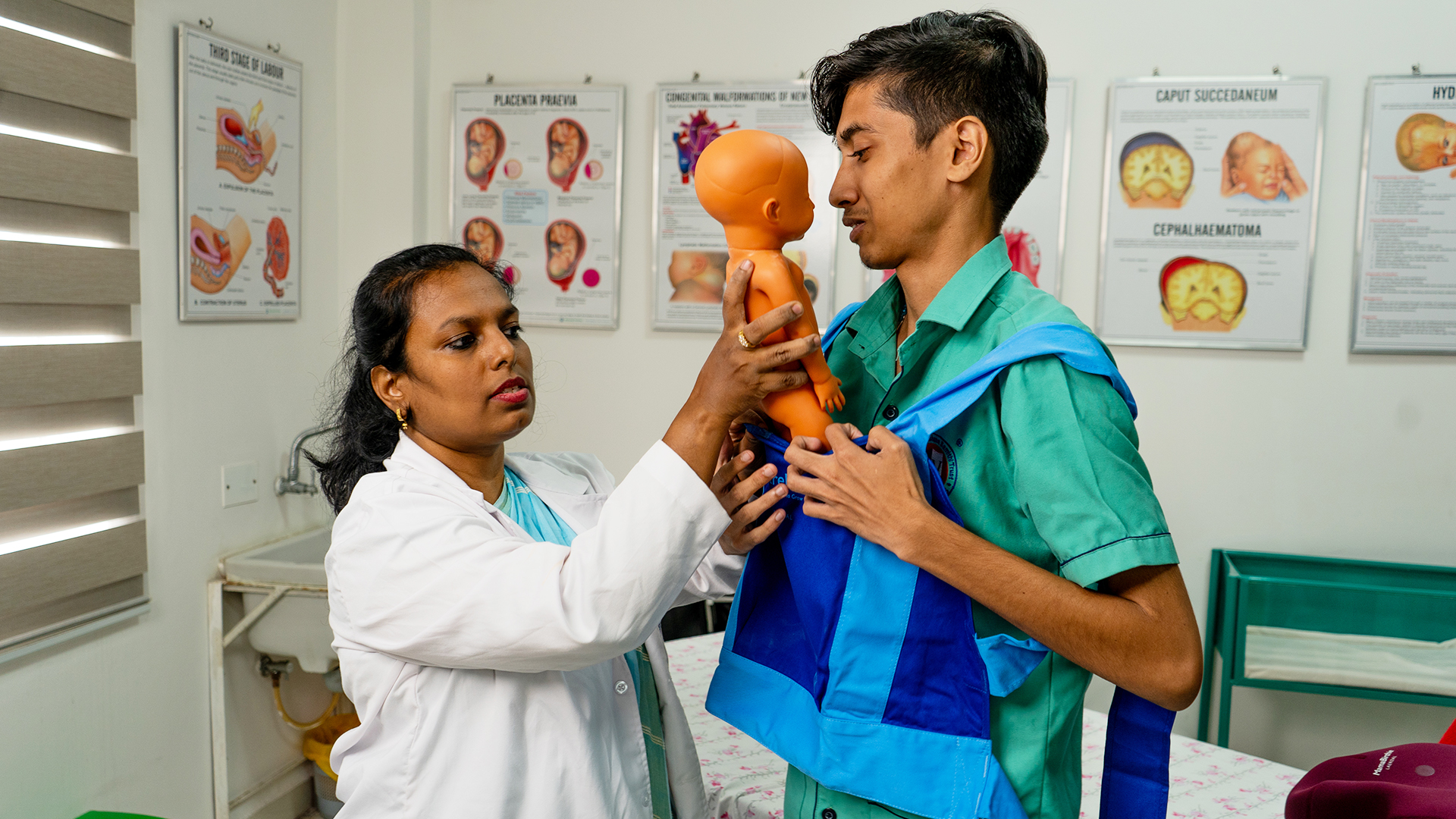
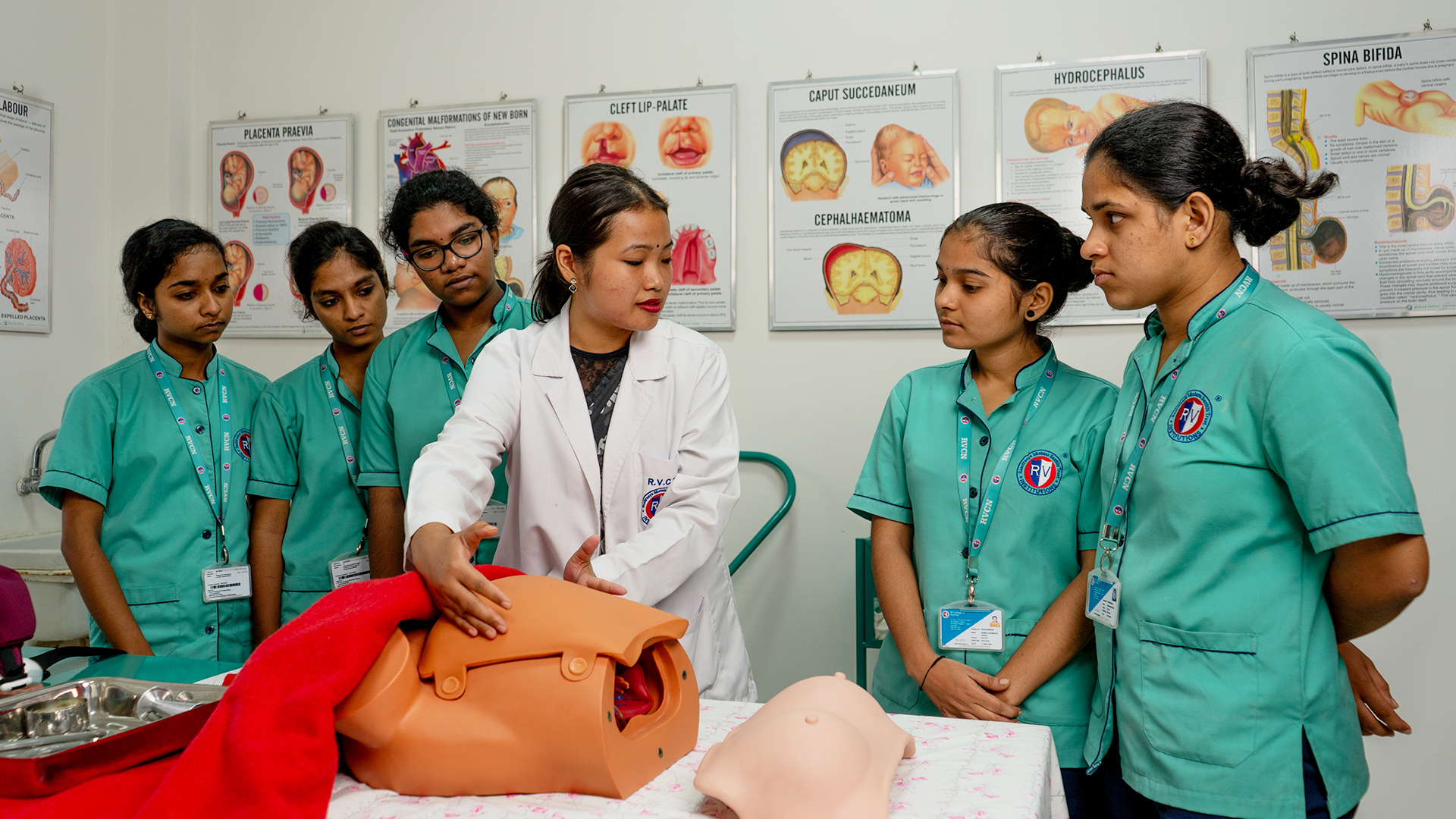
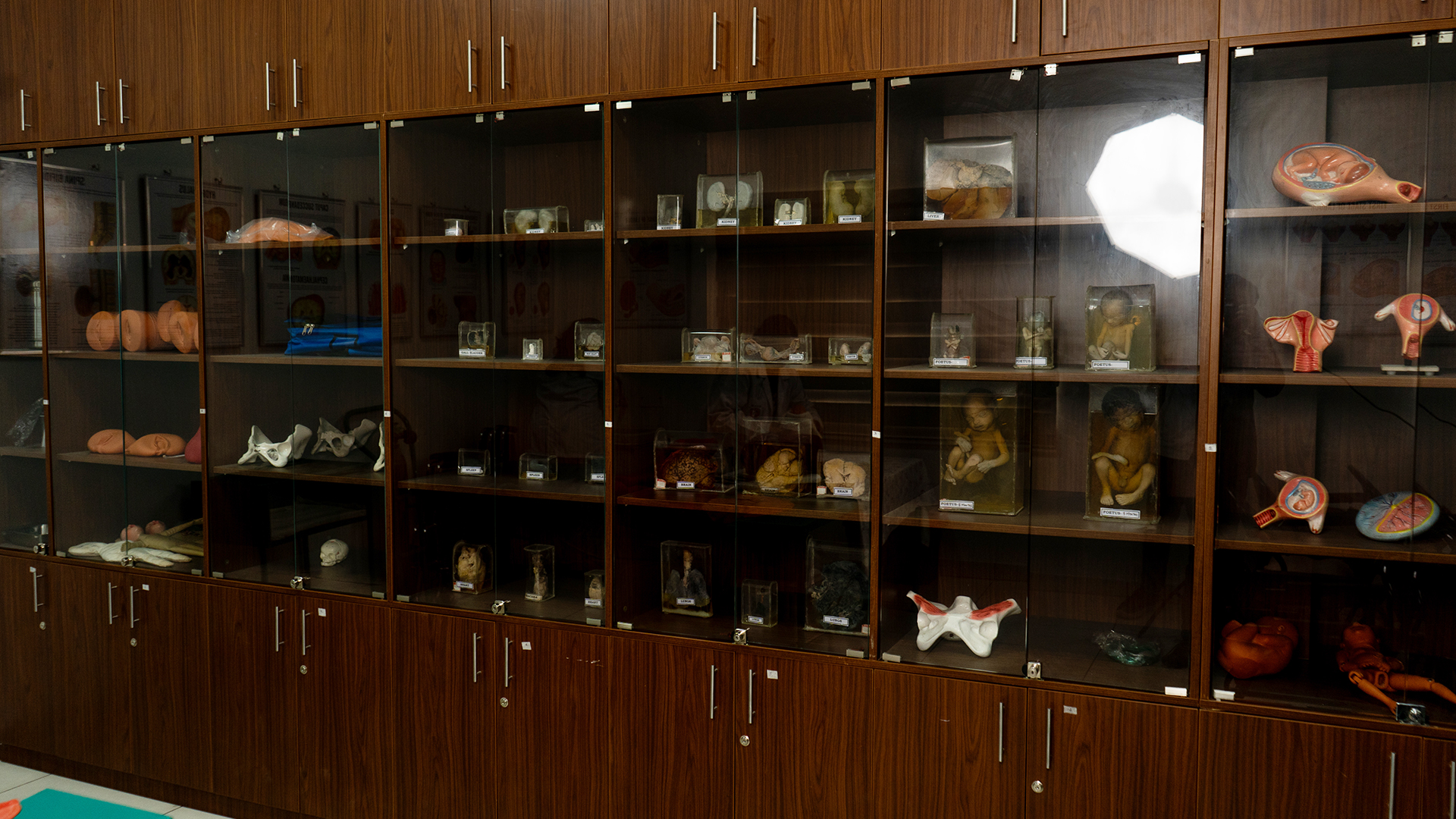
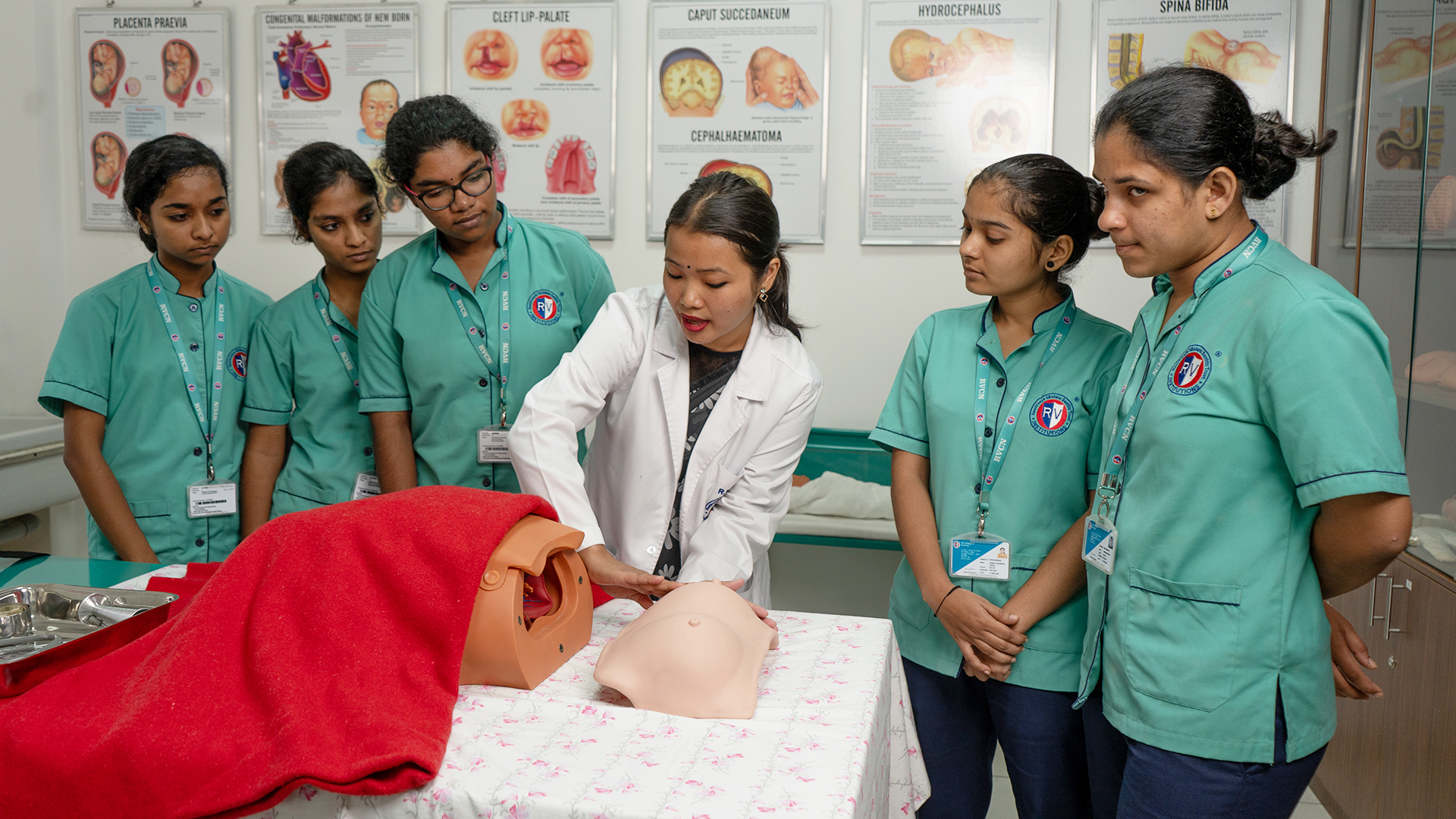
The Department of Psychiatric (Mental Health) Nursing provides academic services and conducts research to promote mental health and prevent mental health problems in people, their families, and communities, as well as continuously intervene and rehabilitate patients with psychiatric problems and their families. It uses theories of human behaviour as its scientific framework and requires the use of the self as its art or expression in nursing practice. The department, under an experienced and dedicated faculty, renders quality education to undergraduate and postgraduate students, assisting them in developing expertise and an in-depth understanding of the field. It helps students appreciate clients as individuals and develop skills to function as psychiatric nurses, enabling them to function as educators, managers, and researchers in the field of psychiatric nursing.




- Refine your nursing skills with comprehensive Basic Cardiac Life Support (BCLS) and Emergency Nursing and Life Support Skills (ENLS) training.
- Get a thorough understanding of CPR, manual defibrillation, airway management, and much more.
- From first responders to experienced nurses, get the expertise you need to save lives.
- Get training in the two most important nursing skills: – Basic Cardiac Life Support (BCLS) and Emergency Nursing & Life Support (ENLS).
- Comprehensive knowledge with hands-on practice will ensure you are equipped to handle any situation.
- You will receive certification upon completion, giving you a valuable edge over other nurses.
Aim: Research and Development Department aims to create interest, train and encourage the UG, PG and PhD students to take up research activities at RV College of Nursing. Research today is increasingly a very important segment of nursing. Research orientation opens doors for expanding nursing knowledge and also the career advancement of nursing professionals.
Objectives:
- The R&D department works with the following objectives:
- To assist and motivate the novice researchers (UG students) in their research activities, holding hands throughout their journey.
- To facilitate the young researchers’ dreams of findings solutions to their clinical and field problems for the benefit of their clientele.
- To conduct journal clubs regularly so as to help the students develop positive attitude towards evidence-based practice that enables them to identify the best nursing care practices that can improve patient outcomes.
- To support the critical care nurse practitioners in carrying out their research projects as they create evidence to contribute to the scientific community.
- To inculcate research-mindedness among young professionals in order to anticipate and adapt to changes in health care delivery, technology, and diverse clientele.
- To instil the values of research in nursing to enhance patient safety and reduce errors and improve the overall quality of care.
- To persuade people to collaborate and participate in interdisciplinary research efforts to foster a holistic approach to patient care.
- To influence the PhD scholars and doctoral candidates to identify a novel and relevant health issues for their thesis.
- To promote research activities among the faculty as a part of staff development
The importance of nursing research
Through research, nurses can:
- Advance the body of knowledge
- Incorporate the most effective and safe treatments.
- Enhance patient safety, reduce errors, and improve the overall quality of care.
- Participate in discussions on healthcare reforms, resource allocation, and quality improvement initiatives.
- Nurse researchers gain recognition, establish themselves as leaders, and experts in their fields.
- Influence policy development by providing evidence that supports changes in healthcare practices, protocols, and standards.
Research opportunities for nurses:
Nurses can participate in the following research activities:
- Clinical research
- health promotion and disease prevention
- quality improvement
- Nursing education and training
- Nursing leadership and management
- patient experience and outcomes, technology, and health care
Future of nursing research in India:
- Rapid advancements in technology are likely to have an impact on nursing research in India. These technologies can enhance data collection and improve patient care and provide opportunities for innovative research studies.
- A focus on public health and community nursing will play a crucial role in order to improve health outcomes in diverse populations.
- Interdisciplinary and collaborative research will lead to a more holistic understanding of health care challenges and improve patient outcomes.
- Nurses may be encouraged to participate in research activities and promote research utilisation and contribute to the development of nursing knowledge.
- Capacity building and education: efforts to enhance research capacity among Nurses in India are likely to continue. This may include initiatives to provide research training, mentorship programmes, and funding opportunities for nursing researchers.
- Investments in nursing education and research infrastructure can help nurture a culture of research excellence and encourage more nurses to engage in research activities.
- Policy and advocacy: nurses in India may play a more active role in shaping healthcare policy and advocating for the integration of research findings into practice. Nursing research can contribute to evidence-based policy-making, influence health care reforms and strengthen the voice of nursing professionals in health care decision-making processes.
- Global collaboration is expected to increase in India. Collaborative research projects, knowledge exchange programmes, and partnerships with global institutions can foster cross-cultural learning, expand research networks, and contribute to the global advancement of nursing science.
RVCN-IEC(Institutional Ethical Committee)
R V College of Nursing, in short RVCN-IEC(Institutional Ethical Committee) is registered with National Ethics Committee Registry for Biomedical and Health Research (NECRBHR), Department of Health Research (DHR), vide No. EC/NEW/INST/2023/4091
Objectives and Responsibilities of RVCN-IEC
- To protect the right, safety and wellbeing of the research subject and assist in welfare and benefit of the society.
- To review the qualifications of all investigators participating in the proposed research study.
- To keep all information submitted to them confidential, especially proprietary information.
- To review all research proposals submitted to the committee within the specified time limits
- To maintain concise but clear documentation of its use on the research proposals.
- To review the progress of each research project at appropriate and specified intervals and also review the summary of the final report of the studies approved by them.
Department of Nursing Education assist students to develop a broad understanding of fundamental principles, concepts, trends and issues related to education and nursing education. Further, it would provide opportunity to students to understand, appreciate and acquire skills in teaching and evaluation, curriculum development, implementation, maintenance of standards and accreditation of the various nursing educational programmes.
OBJECTIVES:
- Describes the teaching and learning process.
- Prepare and utilise various instructional media and methods in teaching and learning process.
- Demonstrates competency in teaching using various instructional strategies.
- Critically analyse the existing nursing educational programs, their problems, issues and future trends.
- Describes the process of curriculum development and the need and methodology of curriculum change, innovation, and integration.
- Plan and conduct continuing nursing education programmes.
- Critically analyse the existing teacher preparation programs in nursing.
- Demonstrates the skill in guidance and counselling.
- Describe the problems and issues related to the administration of the nursing curriculum including selection and organisation of clinical experience.
- Explain the development of standards and accreditation process in nursing education programmes.
- Identify research priorities in nursing education.
- Discuss various models of collaboration in nursing education and services.
- Explain the concept, principles, steps, tools and techniques of evaluation
- Construct, administer, and evaluate various tools for assessment of knowledge, skill, and attitude.
The Department of Nursing Management and Administration is a pioneer in increasing the academic profile of nursing and healthcare fields. Through research and teaching, we are making a valuable contribution to developing solutions to the structural and qualitative challenges of healthcare provision. Our students obtain sound, practice-oriented education and training.Management is seen as a social discipline that deals with the behaviour of people and human institutions, and a manager set objectives organise, motivate, communicate, and develop people; the manager is the dynamic, life-giving element in every business.The current state of health care delivery in the country clearly calls for innovation and the development of original solutions that challenge the status quo. Complexity theory recognises that small changes “nudge” organisations in the right direction. As this transformation of the healthcare delivery system takes place, itIt remains vitally important that nurse leaders manage resources to foster the adaptation that must occur to sustain the current systems.that support patient care.Our focus is on the individual. This applies equally to all of our students and their professional practice. Our principal and professor and academic staff maintain close contact with our students, in an exchange characterised by proximity to everyday professional life,personal interaction and individual support. Our high level of research expertise and our practice-oriented teaching and learning concepts ensure that our graduates have excellent career perspectives in modern and innovative healthcare.
The department of language at RV college of Nursing aims at transforming students passion for learning new languages and discovering diverse cultures into graduate attributes that have a wide scope of application for both personal and professional enhancement and to face the challenges of our time. Our pedagogy is aimed at developing thoughtful and creative individuals striving for excellence in their chosen fields of specialisation.
The languages we offer at RVCN are:
- English
- Kannada
We meticulously coordinate and manage expert language teams to meet our interdisciplinary ongoing curriculum target requirements.
The Institution is infused with the objectives:-
- To enable the student-teachers to develop linguistic skills among their pupils.
- To develop effortless expression and skill of coherent writing
- To develop the ability to read with comprehension
- To demonstrate high level of communicative proficiency in the target language.
- To interpret a variety of cultural products in the target language from a critical perspective.
- To engage in cross-cultural dialogue and experiences through participation in curricular, co-curricular, and/or study abroad programs.


